#that ultimately is about hope and storytelling and myth-making
Note
You like Doctor Who AND Black Sails???? Absolutely chef kiss, cannot believe we share a brain
yeah, I did for a hot second have a separate blog for Black Sails because I actually made this one to be specifically not fandom-related (3 years on and... well.....) so I'm slowly bringing my black sails posting over here instead, fuckit!
thing about Black Sails for me is that on the whole I find it such a perfectly constructed bit of storytelling, with critique that has already been formulated better by other people, that I never know quite what to say about it that hasn't been said, youknow?
it's the show that I've watched that has felt the most like reading a book, with every season leading into one another and the themes introduced in s1 wrapping up in s4, and every piece interacting with one another, and you have to trust that the questions and thematic concepts raised at the beginning have real weight and will go places, which in this day and age of TV is a big ask, because most of the time a TV show has to work one season at a time/doesn't plan that far ahead, lest it get cancelled and/or stretches into depressing perpetuity
(or it's Doctor Who of course, which is just its own monster/mythology at this point, moreso than perhaps any other show, I'd say including Star Trek perhaps...)
but yeah, Black Sails. that's a journey that really matters, you get to the end and you've been holding your breath since probably s2, and you're realising that this is something that TV can do -- I think other shows that have manage the closest (for me) have been miniseries like Chernobyl or Pride & Prejudice and the like, because they've had that clear knowledge that this is the episodes they have, this is where it starts and ends, these are the ways everything talks with one another (Chernobyl and Black Sails especially have in common that the ending makes one want to go back to the beginning, because it's a realisation of OH THIS IS WHAT YOU'VE BEEN SAYING FROM DAY ONE!), but I've not seen it as strongly or as well-constructed (or... finished for that matter) in anything that had multiple seasons like this
+ youknow. multiple polyamorous relationships in different structures, multiple ways of discussing connection and love none of which are more important than the other for being a specific kind, multiple deconstructions of masculinity in popular mythology (pirates), banging sea battles and sword fights, plot moments that take your breath away, political commentary that makes you punch the air, and bits that have you going "OH I READ THIS BIT IN TREASURE ISLAND!!!" (but also you don't need to have read treasure island to watch it... potentially OH YEAH THIS GUY WAS A CYBORG IN TREASURE PLANET 😂)
Black Sails is kind of special. Truly one of a kind
EDIT: ALSO WANTED TO SAY HELL YEAH HIGH FIVE FOR BLACK SAILS AND DOCTOR WHO!
#actually the show for me that hits the closest is Spartacus which I dooont tend to recommend because it is quite brutal/acquired taste#but despite its lead actor dying of cancer it still has that connective tissue from first to last season INCLUDING a prequel season 2#(which was written because the actor was in hospital for his cancer so not planned and yet thematically resonant)#AND two lead characters being played by other actors halfway through (including again aforementioned lead because of the cancer)#but it was spartacus tht made me believe black sails knew what it was doing because it similarly has a very bleak setting/narrative#that ultimately is about hope and storytelling and myth-making#black sails#maybe i should talk about it more#it's just so very precious to me
23 notes
·
View notes
Note
What led you to taking the family from New Orleans to New Mexico?
Thanks for the question, my dear! It honestly hurt my heart to do so, since my own love and attachment to New Orleans is woven so strongly through the 1920s. But I knew from the get-go we’d be leaving the city for a couple reasons….
One, I simply can’t stay in the same sims world for too long. I’m like this in gameplay, but I learned in the 1900s-1910s that that instinct is even stronger in storytelling. Being able to find new angles, builds, lots, lighting, etc. is part of the fun and really makes me look forward to moving the story forward. Likewise, I really like the clear visual distinction of a new world every decade or so (because it won’t always be exactly every ten years), as it creates visual chapters and keeps things feeling fresh for me and I hope, y’all too!
But more specifically, I always knew that many of the end goals of the 1920s would require leaving New Orleans. One was Antoine’s toxic attachment to his past, and his need to let go of that in order to move forward. The other one, and arguably the biggest, was to end the decade with Antoine proposing to Zelda. As I discussed in detail here, this was not possible in New Orleans. Likewise, I did not want Violette’s formative years to be marked by legally mandated segregation (especially in school), so that she could have more freedom in her story and identity.
Now if you look at the map in the post linked above, you’ll see that the choices of where to move them is not exactly plentiful. The easiest choice would have been the Northeast, but I knew pretty early on that I wanted to have a desert backdrop for the 1930s. Thematically, I think it harkens to the images that we associate with this decade and also the concept of the American West, which by the 1930s is beginning to be exposed as a myth (this is a theme I find fascinating and y’all will see as the years go by). Its also meant to provide a heavy contrast to the warm, tropical air of New Orleans, and how that climate kind of intersects with the idea of decadence in the 1920s.
As far as sim-specifics, I try and look at all the worlds and see what can realistically be used for what decade and geographic location. From the get-go I was intrigued by Strangerville, since it’s a world I never really play in and the military base has some good story potential (oh? Is that a spoiler you say? 👀). I also don’t see it used that often, and I especially think the downtown is so cinematic. This really fell in line with the ideas I already had about leaving New Orleans and the themes of the West, so I referenced the map in the linked post, and ultimately decided on New Mexico. Then with subsequent research and studying Strangerville’s landscape (namely the rocks and the road and how I could incorporate that into the story), I finally placed the town in the Northwestern corner of the state, with easy road access both North and West for wherever the next decade takes us 😉
23 notes
·
View notes
Note
heyy i was wondering if you have an opinion on the role the jedi order plays in the republic? on a political level I mean :D
so, my thoughts on the jedi order are largely shaped by george lucas, and that means my answer to this question may not be as politically nuanced as you may hope (aka the political things i write about in my fanfics are genre-bent reinterpretations of the core lore of the saga). the nature of the jedi's participation in politics is pretty simple, in the way that myths are simple.
it would probably be easier for me to share and explain some of my notes i took while reading the sw prequels archives and comment of them. i transcribed a lot of the book in the process of trying to understand it, so the following are quotes from george unless otherwise noted. this is the book i mean:
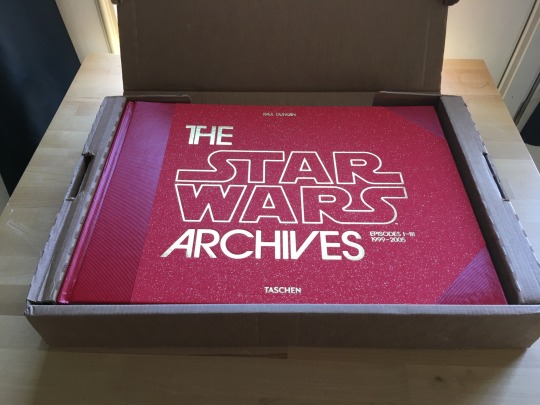
oh sw archives my beloved. anyway.
first, and most importantly, the jedi are not a real political organization that exists in the world, but rather their design is to further george's narrative. he is not writing a political thriller, but rather an emotional and philosophical one. they're more like symbols for moral quandaries than a real organization.

the jedi are space wizards, and also the most moral agents possible. this is not realism, but rather they are agents in a spiritual morality play, where they are an explicitly defined white-hat good guys, who are in combat with black-hat selfish bad guys. he's telling a mythic story, so you have to reframe the jedi out of history and into myth.
he wants to tell a story about how it is not enough to rule by fear. fear is not a sufficient mechanism to keep society civil. you need something else, something 'supernatural' in his words in order to encourage mutual flourishing, some way to overcome our tribal limitations and fears and live in a unified and diverse world.
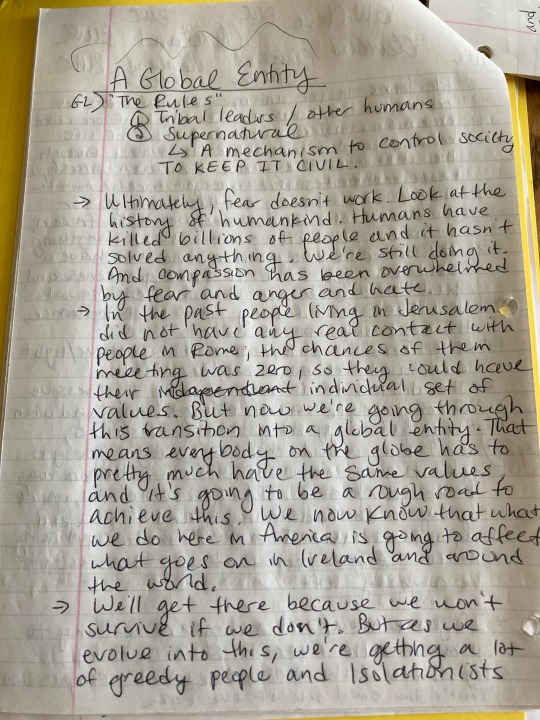
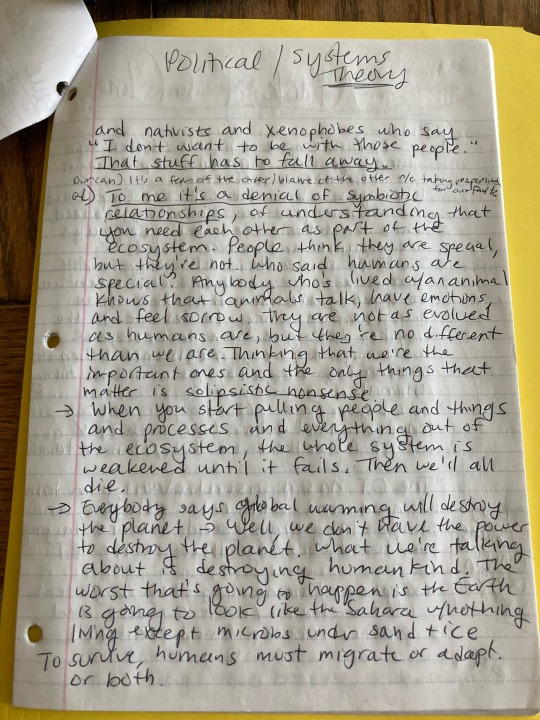
the jedi are his idea of how to show that force of compassion in a narrative, the idea of people with power motivated by the right reasons, working for the good of everyone. the jedi are the embodiment of the archetype of the true public servant, the ones we want to have ruling over us. this is not a class of people that actually exist in reality, but also nobody here has space magic either.
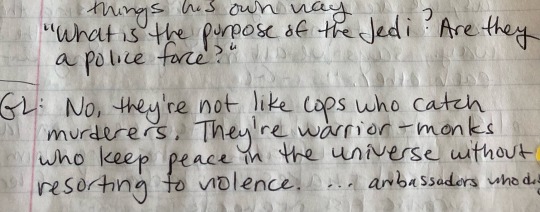
so his design is that the jedi order are warrior-monks who keep the peace, ambassadors more than cops, the most moral people in the galaxy, because they are monks.
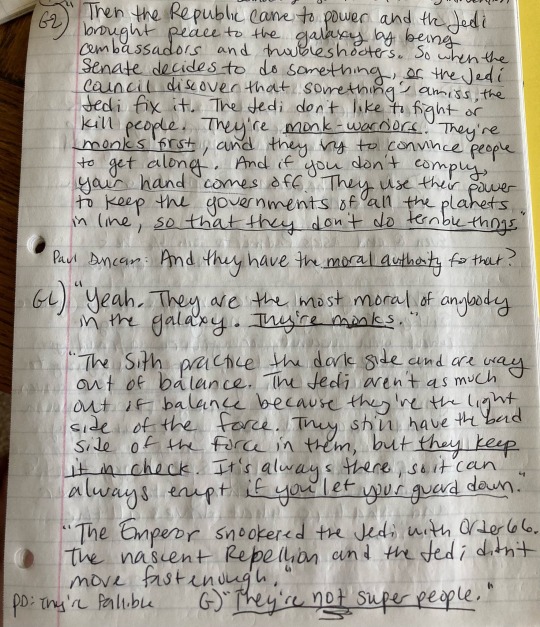
they've chosen to serve, and been given both duty and oversight from the galactic senate. they do not create the world order, but they do their best to encourage peace and civilization whenever and wherever they can. there aren't that many of them, but they are extremely powerful people, who are by narrative design the most moral people in the galaxy (just.. not anakin at the end there).
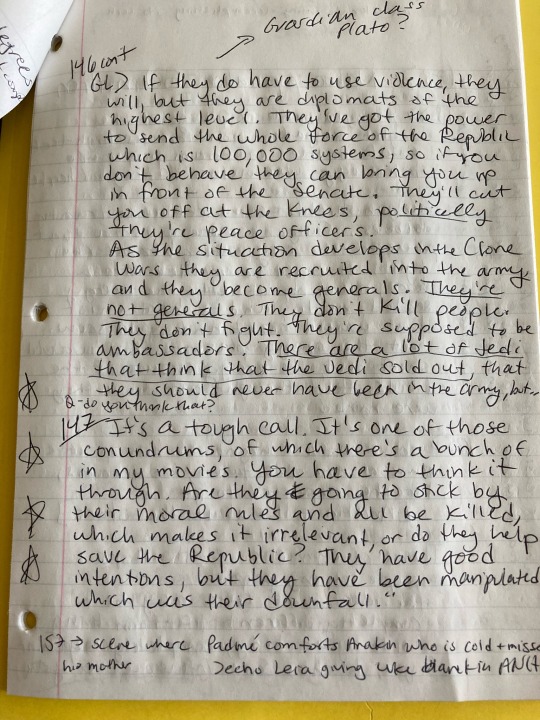
ultimately, they exist to be trapped into a bind, the morality of always doing the right thing vs the morality of always seeking the best outcome. there is no clean answer to that, it's a perennial tension in the history of philosophy, so the jedi are emblematic of that, you know? in the end, they're literary figures more than real world political ones, and exist so that we can interrogate our own values.
i realize this is a take that might be unpopular with segments of the fanbase who really enjoy analyzing star wars through the lens of realpolitik and making it gritty and adult and complex. my answer is that star wars is heartbreakingly simple. they're an embodiment of our better natures, locked in a fight against our worst. the politics stuff is all pretty superficial storytelling on top of that.
#could i play historian and try to pretend there's enough there to#write about it like history?#absolutely. i do that in fanfic#but i think it's really important to keep in mind#the genre and the message of the stories#which is moral and emotional. they're heroes in a bind#sw#long post
25 notes
·
View notes
Text
Been seeing a lot of takes about how Bakugo should stay dead "because it's better narratively speaking" and I don't mean to tease, because hey, valid opinion, but the more of these I read the more I'm realizing that most of you uhhhhhh do not know what the fuck that means lol.
Like? Him coming back to life being a "bad" narrative choice simply on the basis that he doesn't stay dead is not... how that works. Not just because a "good" narrative is subjective, but there is such a long history of characters dying and being resurrected in stories that are far older, more popular, and more critically acclaimed than My Hero Academia could ever hope to be.

Yes, I stole that from Wikipedia. The hero's journey/monomyth is an extremely common and infamous narrative structure (which yes, has many flaws and has been dissected at length in the academic sector, especially Campbell's, I know, shut up) which has a specified part of the story where the hero character dies/descends. It's a Biblical callback— you know, with Jesus and the dead for three days thing—but character resurrection as a narrative tool appears in even older works as well, such as the Mahābhārata. It features in the Greek myths, in folklore around the world (Little Red Riding Hood is one most western readers will be familiar with), the Arthurian legends, and has a place in modern literature such as The Lord of the Rings, meaning it has spanned our collective storytelling and been used as a narrative device to great success for thousands of years. If I wasn't being clear ebough—there is nothing inherently "bad" about a character dying and being brought back to life, because it can serve just as much purpose as keeping a character dead. Generally speaking, the concept of resurrection is one associated with transformation and change, and can even be a purifying act. It's a mark of the ultimate low, and is frequently a test of a character's ability/growth.
Beyond the historic/literary route, character resurrection has a very long, prominent place in manga/anime, especially shonen. Watch any season of Dragon Ball if you don't believe me. Naruto? One Piece? Jojo's Bizarre Adventure? Actually I can't just start naming them, we'll be here all day. Suffice to say it's practically a running gag at this point that characters aren't dead until the story's over, and sometimes not even then. To be clear: despite my previous phrasing, manga is not somehow "less" literary than any other medium of storytelling, and the tropes that come with it should not be devalued. People love to pull the whole "it's a manga thing", but the point of our Lit 101 speedrun was to show that "manga things" are rarely a) unique to manga, nor b) considered universally bad/stupid outside of manga.
Like, yeah, there are absolutely arguments as to why Bakugo coming back to life would be to the story's detriment. You could feel it would cheapen his sacrifice, or you could talk about how it would affect the emotional impact of the war setting. Maybe you feel there wasn't enough lead-up to the possibility of the character dying and coming back. You might prefer tragic hero characters, or maybe you just hate Bakugo. Maybe you just hate character resurrection. None of those reasons are wrong, because they are opinions first and foremost and you have the right to yours. But please, for the love of God, get it out of your head that character resurrection is always a lazy deus ex machina used by writers backed into a corner. It's not true and is, quite frankly, poorly informed.
Personally, I find there to be a lot of foreshadowing of Bakugo's continued, active involvement in the plot, as well as further developmental growth that otherwise has just been cut short. If the goal is to get him into the vestige world where a bunch of dead people are, him dying doesn't seem strange or out of place to me. Equally, this being a transformative moment for his character, where afterwards he will never be the same, makes sense. Character resurrection is frequently used as a symbol of hope within the story, and if that wording rings any bells— it was intentional. To me, Bakugo coming back to life could easily serve a purpose that fits appropriately within the narrative framework and the morals and ideals it imbues. I can't 100% guarantee he won't stay dead, but hey, the story's still not over.
Final disclaimer: no, I don't care if you hate Bakugo and/or want him to stay dead, it's fine, people can disagree about things. I just hate the rhetoric I've been seeing surrounding character resurrection as a narrative tool. Also, yes, this is an overly simplified look at literature studies that has a more western slant to it, I am extremely aware. If you try to debate with me about Joseph Campbell I will physically manifest in your house and chew on your drywall.
#bnha#bnha spoiler#bakugo#bnha 362#bnha meta#god I had to cut so much out typing this like I kept having to remind myself nobody gives a shit#seriously joseph campbell is flawed and so is the hero's journey archetype but like that doesn't mean it isn't worth talking about#but also don't talk to me about it
41 notes
·
View notes
Text
Empowering Care: Exploring the Best Healthcare Ads in Recent Years

Advertising plays a crucial role in shaping perceptions and driving consumer behavior today. Within the healthcare industry, effective advertising not only promotes products and services but also educates and empowers individuals to take charge of their well-being. Over the years, several healthcare ad campaigns have stood out for their creativity, emotional resonance, and ability to inspire action. Let's take a closer look at some of the best healthcare ads from recent years that have left a lasting impact.
Leveraging Emotional Storytelling
One of the most powerful strategies employed by healthcare advertisers is leveraging emotional storytelling to connect with audiences on a deeper level. Ads that tell compelling stories of triumph over adversity or highlight the transformative power of medical breakthroughs resonate strongly with viewers. For example, a campaign showcasing the journey of a cancer survivor or the heartwarming story of a patient overcoming a chronic illness can evoke empathy and drive home the message of hope and resilience.
Focusing on Health and Wellness
In today's health-conscious society, there is a growing demand for products and services that promote overall well-being. Healthcare advertisers have capitalized on this trend by creating ads that focus on preventive care, healthy lifestyle choices, and the importance of self-care. Whether it's promoting nutritious foods, fitness programs, or mental health resources, these ads aim to empower individuals to prioritize their health and make informed decisions about their lifestyle habits.
Harnessing the Power of Technology
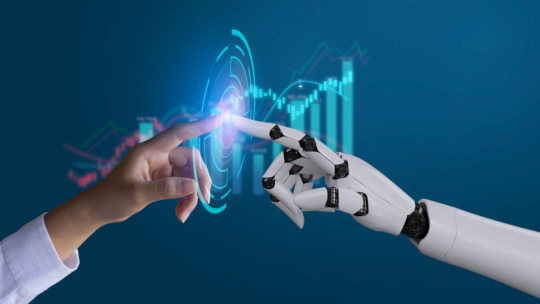
With advancements in technology, healthcare advertisers have new tools at their disposal to reach and engage consumers. Digital platforms such as Google Ads provide a targeted and efficient way to connect with individuals seeking health-related information and solutions. By utilizing data of millions of ads from strategies and personalized messaging, advertisers can deliver relevant content to specific audiences, whether they're searching for health products, information about medical conditions, or local healthcare services.
Educating and Informing
Beyond promoting products and services, healthcare campaigns also play a vital role in educating and informing the public about important health issues. Ad campaigns focused on raising awareness about diseases, promoting vaccination, or encouraging regular health screenings can have a significant impact on public health outcomes. By providing accurate information and dispelling myths and misconceptions, these ads empower individuals to make informed decisions about their health and take proactive steps to prevent illness and disease.
Inspiring Action
Ultimately, the goal of healthcare advertising is to inspire action and drive positive behavior change. Whether it's encouraging individuals to adopt healthier habits, seek medical treatment, or support a worthy cause, effective ads compel viewers to take meaningful action. Calls to action such as scheduling a check-up, signing up for a wellness program, or donating to a charity resonate with audiences and motivate them to take the next step toward better health and well-being.
Breaking Stigmas and Promoting Inclusivity

In recent years, healthcare advertising has also taken strides in breaking down stigmas surrounding certain health conditions and promoting inclusivity. Ad campaigns that feature diverse representations of age, gender, ethnicity, and abilities help to foster a more inclusive and supportive environment for all individuals. By showcasing real people and their stories, these ads challenge stereotypes and encourage empathy and understanding.
Leveraging Influencers and Thought Leaders
Another effective strategy in healthcare advertising is partnering with influencers and thought leaders in the medical and wellness communities. Collaborating with trusted voices in the industry lends credibility to ad campaigns and helps to amplify their reach. Whether it's a celebrity endorsement, a testimonial from a healthcare professional, or a partnership with a well-known advocacy organization, leveraging influencers can increase engagement and drive awareness of important health issues.
Evolving Trends in Visual and Digital Design
As technology continues to advance, so too do the trends in visual and digital design within healthcare advertising. From immersive virtual reality experiences to interactive social media campaigns, advertisers are finding innovative ways to captivate audiences and deliver their message effectively. By staying abreast of the latest trends and embracing new technologies, healthcare advertisers can create memorable and impactful campaigns that resonate with modern consumers.
In conclusion
Healthcare advertising plays a vital role in promoting health, wellness, and empowerment. By leveraging emotional storytelling, focusing on preventive care, harnessing technology, educating the public, and inspiring action, advertisers can create impactful campaigns that resonate with audiences and drive positive change. As we continue to navigate the complex landscape of healthcare ads, effective advertising will remain a powerful tool for informing, inspiring, and empowering individuals to prioritize their health and live their best lives.
#Healthcare ads#Best healthcare ads#Health products ads#Google ads for healthcare#Healthcare google ads
0 notes
Text
Empowering Care: Exploring the Best Healthcare Ads in Recent Years

Advertising plays a crucial role in shaping perceptions and driving consumer behavior today. Within the healthcare industry, effective advertising not only promotes products and services but also educates and empowers individuals to take charge of their well-being. Over the years, several healthcare ad campaigns have stood out for their creativity, emotional resonance, and ability to inspire action. Let's take a closer look at some of the best healthcare ads from recent years that have left a lasting impact.
Leveraging Emotional Storytelling
One of the most powerful strategies employed by healthcare advertisers is leveraging emotional storytelling to connect with audiences on a deeper level. Ads that tell compelling stories of triumph over adversity or highlight the transformative power of medical breakthroughs resonate strongly with viewers. For example, a campaign showcasing the journey of a cancer survivor or the heartwarming story of a patient overcoming a chronic illness can evoke empathy and drive home the message of hope and resilience.
Focusing on Health and Wellness
In today's health-conscious society, there is a growing demand for products and services that promote overall well-being. Healthcare advertisers have capitalized on this trend by creating ads that focus on preventive care, healthy lifestyle choices, and the importance of self-care. Whether it's promoting nutritious foods, fitness programs, or mental health resources, these ads aim to empower individuals to prioritize their health and make informed decisions about their lifestyle habits.
Harnessing the Power of Technology

With advancements in technology, healthcare advertisers have new tools at their disposal to reach and engage consumers. Digital platforms such as Google Ads provide a targeted and efficient way to connect with individuals seeking health-related information and solutions. By utilizing data of millions of ads from strategies and personalized messaging, advertisers can deliver relevant content to specific audiences, whether they're searching for health products, information about medical conditions, or local healthcare services.
Educating and Informing
Beyond promoting products and services, healthcare campaigns also play a vital role in educating and informing the public about important health issues. Ad campaigns focused on raising awareness about diseases, promoting vaccination, or encouraging regular health screenings can have a significant impact on public health outcomes. By providing accurate information and dispelling myths and misconceptions, these ads empower individuals to make informed decisions about their health and take proactive steps to prevent illness and disease.
Inspiring Action
Ultimately, the goal of healthcare advertising is to inspire action and drive positive behavior change. Whether it's encouraging individuals to adopt healthier habits, seek medical treatment, or support a worthy cause, effective ads compel viewers to take meaningful action. Calls to action such as scheduling a check-up, signing up for a wellness program, or donating to a charity resonate with audiences and motivate them to take the next step toward better health and well-being.
Breaking Stigmas and Promoting Inclusivity

In recent years, healthcare advertising has also taken strides in breaking down stigmas surrounding certain health conditions and promoting inclusivity. Ad campaigns that feature diverse representations of age, gender, ethnicity, and abilities help to foster a more inclusive and supportive environment for all individuals. By showcasing real people and their stories, these ads challenge stereotypes and encourage empathy and understanding.
Leveraging Influencers and Thought Leaders
Another effective strategy in healthcare advertising is partnering with influencers and thought leaders in the medical and wellness communities. Collaborating with trusted voices in the industry lends credibility to ad campaigns and helps to amplify their reach. Whether it's a celebrity endorsement, a testimonial from a healthcare professional, or a partnership with a well-known advocacy organization, leveraging influencers can increase engagement and drive awareness of important health issues.
Evolving Trends in Visual and Digital Design
As technology continues to advance, so too do the trends in visual and digital design within healthcare advertising. From immersive virtual reality experiences to interactive social media campaigns, advertisers are finding innovative ways to captivate audiences and deliver their message effectively. By staying abreast of the latest trends and embracing new technologies, healthcare advertisers can create memorable and impactful campaigns that resonate with modern consumers.
In conclusion
Healthcare advertising plays a vital role in promoting health, wellness, and empowerment. By leveraging emotional storytelling, focusing on preventive care, harnessing technology, educating the public, and inspiring action, advertisers can create impactful campaigns that resonate with audiences and drive positive change. As we continue to navigate the complex landscape of healthcare ads, effective advertising will remain a powerful tool for informing, inspiring, and empowering individuals to prioritize their health and live their best lives.
#Healthcare ads#Best healthcare ads#Health products ads#Google ads for healthcare#Healthcare google ads
0 notes
Text
The Ultimate Guide to Monetizing Travel Ads
Are you a passionate traveler hoping to make a steady living off of your wanderlust? Get ready to discover never-before-seen possibilities as we share the untold secrets of monetizing travel advertisements.
What Are Travel Ads
First things first, let's examine the fundamentals. What are travel advertisements exactly, and how can you use them to get the money you want? We're dispelling the myths surrounding travel advertising and demonstrating how you can take advantage of it.
It's now easier than ever to monetize your travel experiences, and the 7Search PPC advertising network is a useful tool for doing so. Prepare to learn how combining the precision of PPC with the allure of travel can increase your earning potential.

Understanding the 7Search Advantage
First things first – why 7Search? We'll delve into the unique features and benefits that make this PPC platform stand out. From targeted keyword options to budget flexibility, understanding the tools at your disposal is key to maximizing your travel ads monetization strategy.
Crafting Irresistible Travel Ad Campaigns
With 7Search PPC, the success of your campaigns lies in the art of crafting compelling ads. We'll guide you through the process of creating attention-grabbing headlines, engaging visuals, and persuasive copy that not only attracts but also converts, ensuring you get the most out of every click.
Targeting the Right Audience
One of the strengths of 7Search PPC is its robust targeting options. Learn how to identify and reach your ideal audience – those who are not just interested in travel but are ready to engage with your content and, more importantly, your monetization efforts.
Budgeting for Success
Monetizing travel ads effectively requires a strategic approach to budgeting. We'll walk you through setting realistic budgets, optimizing bids, and monitoring performance metrics to ensure that every dollar spent brings you closer to your financial goals.
The Hidden Goldmine: Diverse Monetization Strategies
Not all roads to monetization are the same. Whether you're a blogger, vlogger, or social media maven, we'll guide you through various strategies – from sponsored content to affiliate marketing – helping you find the perfect match for your style and audience.
Insider Insights: Learn from Seasoned Travel Influencers
Ever wondered how the pros make it big in the travel ads game? We've tapped into the experiences of successful travel influencers, bringing you their secrets to success. Avoid common pitfalls and gain valuable insights that could propel your travel ad monetization journey.
Practical Steps: Transforming Dreams into Dollars
Ready to turn your travel dreams into cold, hard cash? We're laying out practical steps to implement effective monetization strategies. Learn the art of negotiation, content optimization, and other trade tricks to maximize your earning potential.
The Future Awaits: Emerging Trends in Travel Ads Monetization
As technology advances, so do opportunities. We're not just stopping at the present – explore emerging trends and stay ahead of the curve in the ever-evolving landscape of travel ads monetization. Your journey to financial success is about to get even more exciting.
Unveil the Secrets Today
Join us as we lift the curtain on the untold secrets of travel and monetization. Whether you're a seasoned explorer or just starting your journey, this blog post is your key to unlocking the full potential of turning your wanderlust into a thriving source of income.
In the world of travel ads, a compelling story can be your greatest asset. Learn the art of storytelling – how to captivate your audience, evoke emotions, and create a narrative that resonates and converts. We'll share tips from storytellers who have mastered the craft, helping you elevate your content to new heights.
Navigating Challenges: Overcoming Hurdles in Monetization
Every journey has its challenges, and travel ads monetization is no exception. From algorithm changes to market saturation, we'll guide you through common hurdles and provide practical solutions. Stay resilient and turn obstacles into opportunities on your path to monetization success.
Community Building: Engage, Connect, Thrive
Building a community around your travel adventures is more than just a trend – it's a strategic move for long-term success. Discover the importance of audience engagement, fostering community, and leveraging your followers to amplify your reach and income potential.
The Legal Landscape: Protecting Your Passion
As you delve into the world of monetization, it's crucial to understand the legal aspects. From disclosure guidelines to copyright considerations, we'll demystify the legal landscape, ensuring you protect your brand and passion while navigating the intricacies of sponsored content and partnerships.
Monetization Beyond Ads: Diversifying Income Streams
While travel ads are a potent source of income, savvy influencers know the importance of diversification. Explore alternative revenue streams such as merchandise, online courses, and affiliate partnerships, ensuring a robust and resilient income model for the long haul.
Your Monetization Journey Continues
Congratulations, you've just scratched the surface of the untold secrets of travel advertising monetization Dive deeper into the world of financial freedom through your passion for travel. This blog post is your comprehensive guide, providing you with the knowledge, tools, and inspiration to navigate the exciting landscape of turning wanderlust into wealth.
0 notes
Photo
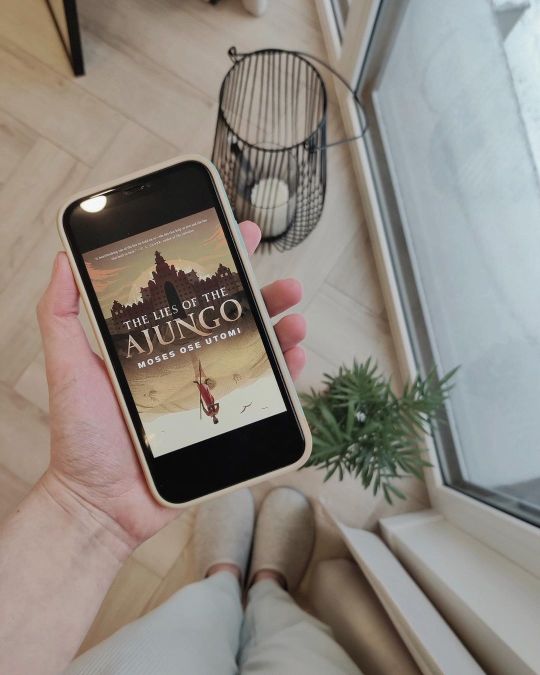
I'm grateful to Netgalley, the author of the story - Moses Ose Utomi, and the publisher for providing me with this free advanced reading copy in exchange for the honest review. It was an unusual and interesting experience for me. The Lies of Ajungo by Moses Ose Utomi is more a fable than a fantasy adventure. It follows our main character Tutu on his quest of finding water for his city and saving his mother. But it's not a fun adventurous story though we had some adventures and a lot of action in it. It has more symbolism and metaphoric moments than anything else. Nothing as it seems. This novella has an interesting contrast between its rather naive tone(because of a young and inexperienced main character) and a rather brutal story. I was really surprised by it, by for me it worked great. This is a story about growing up and understanding the world as it is without childish delusions and belief in the ultimate justice and truthfulness of the world. It's interesting that the writing felt for me both fresh and traditional. Fresh because I haven't read such stories for ages and traditional because it reminded me about the times I read fables and legends. The character work was appropriate for the genre. Nothing too deep, but with the right depth to play the role and to show the meanings of the story - it reminded me of old myths as well. I'm a little bit afraid for the marketing of this novella - it's really important to show what it is to readers before they start this book. The ones who expect an epic and light adventure could be left disappointed even though it isn't the book's fault. I really hope it will work out well for this novella because I'm always here for something new and unusual in the genre, the mix of genres, and using absolutely different settings and storytelling techniques. It helps to develop the fantasy genre and makes it bigger and more appealing to more and more readers every year. https://www.instagram.com/p/CmCFPLpoZd-/?igshid=NGJjMDIxMWI=
0 notes
Photo
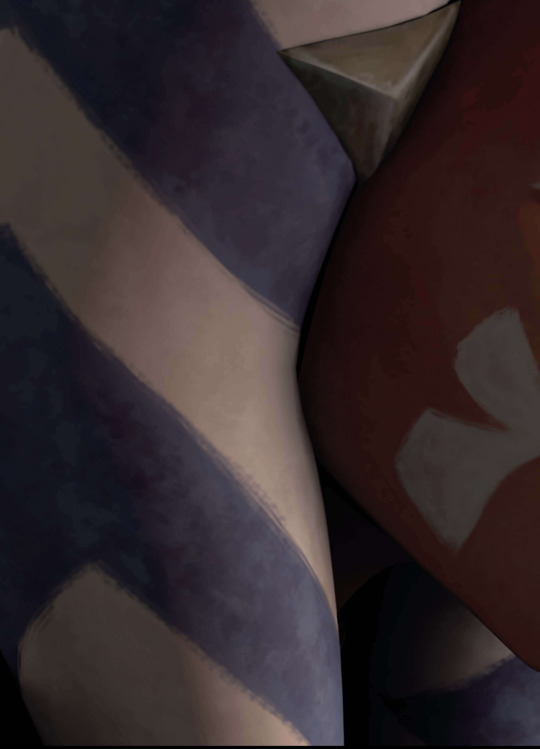

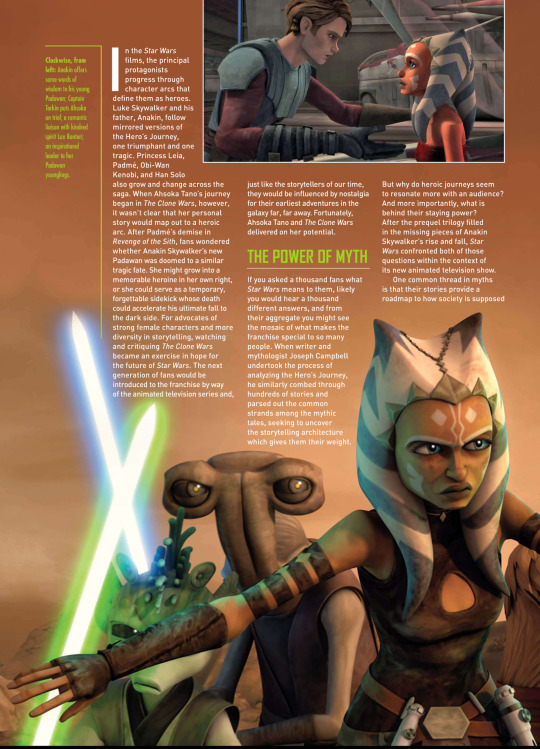
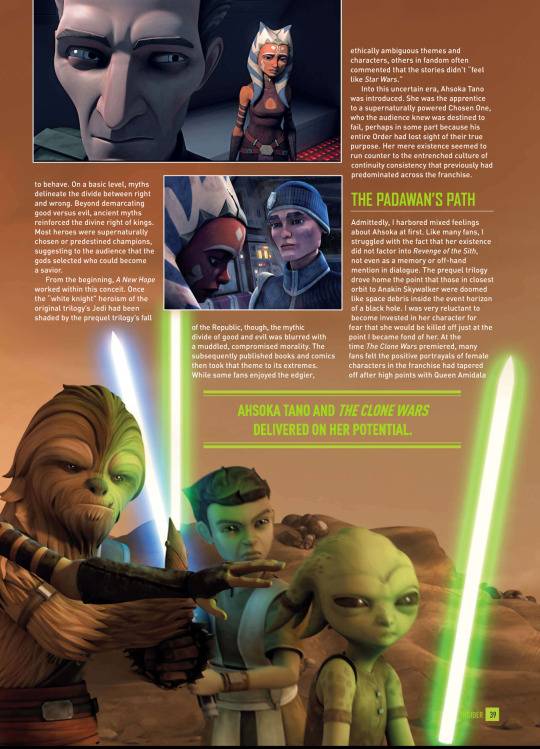
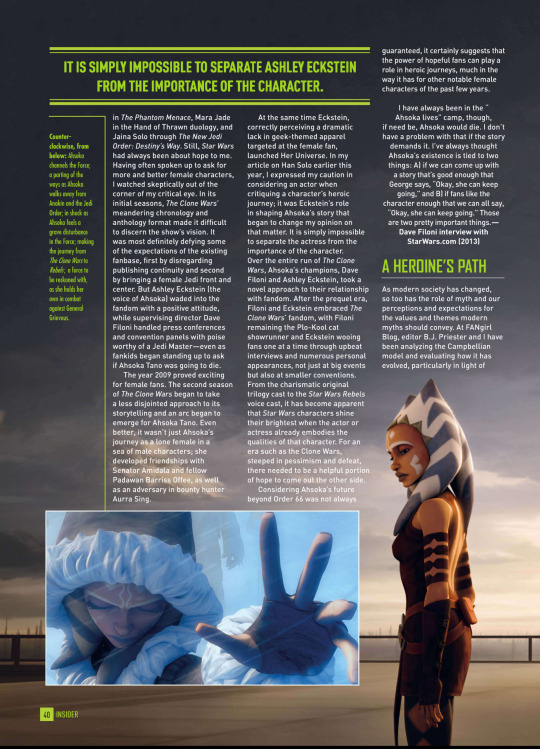
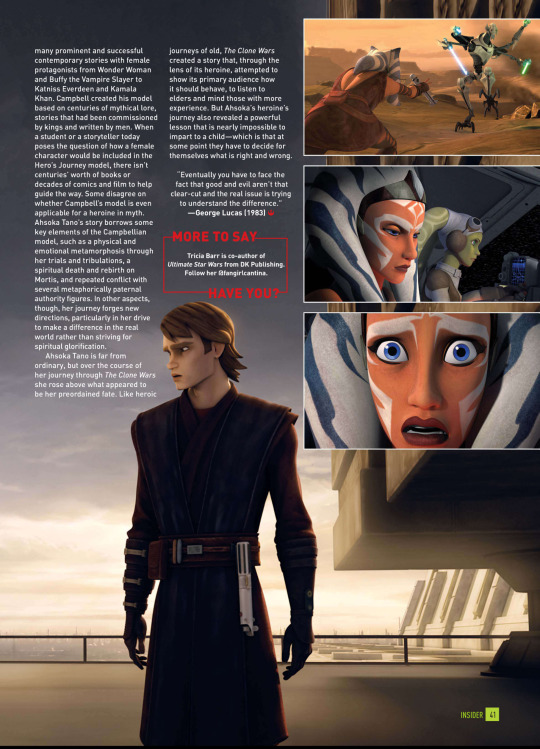
AHSOKA TANO A HERO FOR OUR TIME (#160, OCT 2015)
In her ongoing series on the Hero’s Journey in Star Wars, Tricia Barr examines how Ahsoka Tano’s arc in Star Wars: The Clone Wars reveals the evolution of mythological heroes.
In the Star Wars films, the principal protagonists progress through character arcs that define them as heroes. Luke Skywalker and his father, Anakin, follow mirrored versions of the Hero’s Journey, one triumphant and one tragic. Princess Leia, Padme, Obi-Wan Kenobi, and Han Solo also grow and change across the saga. When Ahsoka Tano’s journey began in The Clone Wars, however, it wasn’t clear that her personal story would map out to a heroic arc. After Padme’s demise in Revenge of the Sith, fans wondered whether Anakin Skywalker’s new Padawan was doomed to a similar tragic fate. She might grow into a memorable heroine in her own right, or she could serve as a temporary, forgettable sidekick whose death could accelerate his ultimate fall to the dark side. For advocates of strong female characters and more diversity in storytelling, watching and critiquing The Clone Wars became an exercise in hope for the future of Star Wars. The next generation of fans would be introduced to the franchise by way of the animated television series and, just like the storytellers of our time, they would be influenced by nostalgia for their earliest adventures in the galaxy far, far away. Fortunately, Ahsoka Tano and The Clone Wars delivered on her potential.
THE POWER OF MYTH
If you asked a thousand fans what Star Wars means to them, likely you would hear a thousand different answers, and from their aggregate you might see the mosaic of what makes the franchise special to so many people. When writer and mythologist Joseph Campbell undertook the process of analyzing the Hero’s Journey, he similarly combed through hundreds of stories and parsed out the common strands among the mythic tales, seeking to uncover the storytelling architecture which gives them their weight. But why do heroic journeys seem to resonate more with an audience? And more importantly, what is behind their staying power? After the prequel trilogy filled in the missing pieces of Anakin Skywalker’s rise and fall, Star Wars confronted both of those questions within the context of its new animated television show.
One common thread in myths is that their stories provide a roadmap to how society is supposed to behave. On a basic level, myths delineate the divide between right and wrong. Beyond demarcating good versus evil, ancient myths reinforced the divine right of kings. Most heroes were supernaturally chosen or predestined champions, suggesting to the audience that the gods selected who could become a savior.
From the beginning, A New Hope worked within this concept. Once the “white knight” heroism of the original trilogy’s Jedi had been shaded by the prequel trilogy’s fall of the Republic, though, the mythic divide of good and evil was blurred with a muddled, compromised morality. The subsequently published books and comics then took that theme to its extremes. While some fans enjoyed the edgier, ethically ambiguous themes and characters, others in fandom often commented that the stories didn’t “feel like Star Wars.”
Into this uncertain era, Ahsoka Tano was introduced. She was the apprentice to a supernaturally powered Chosen One, who the audience knew was destined to fail, perhaps in some part because his entire Order had lost sight of their true purpose. Her mere existence seemed to run counter to the entrenched culture of continuity consistency that previously had predominated across the franchise.
THE PADAWAN’S PATH
Admittedly, I harbored mixed feelings about Ahsoka at first. Like many fans, I struggled with the fact that her existence did not factor into Revenge of the Sith, not even as a memory or off-hand mention in dialogue. The prequel trilogy drove home the point that those in closest orbit to Anakin Skywalker were doomed like space debris inside the event horizon of a black hole. I was very reluctant to become invested in her character for fear that she would be killed off just at the point I became fond of her. At the time The Clone Wars premiered, many fans felt the positive portrayals of female characters in the franchise had tapered off after high points with Queen Amidala in The Phantom Menace, Mara Jade in the Hand of Thrawn duology, and Jaina Solo through The New Jedi Order: Destiny’s Way. Still, Star Wars had always been about hope to me. Having often spoken up to ask for more and better female characters, I watched skeptically out of the corner of my critical eye. In its initial seasons, The Clone Wars’ meandering chronology and anthology format made it difficult to discern the show’s vision. It was most definitely defying some of the expectations of the existing fanbase, first by disregarding publishing continuity and second by bringing a female Jedi front and center. But Ashley Eckstein (the voice of Ahsoka) waded into the fandom with a positive attitude, while supervising director Dave Filoni handled press conferences and convention panels with poise worthy of a Jedi Master—even as fankids began standing up to ask if Ahsoka Tano was going to die.
The year 2009 proved exciting for female fans. The second season of The Clone Wars began to take a less disjointed approach to its storytelling and an arc began to emerge for Ahsoka Tano. Even better, it wasn’t just Ahsoka’s journey as a lone female in a sea of male characters; she developed friendships with Senator Amidala and fellow Padawan Barriss Offee, as well as an adversary in bounty hunter Aurra Sing.
At the same time Eckstein, correctly perceiving a dramatic lack in geek-themed apparel targeted at the female fan, launched Her Universe. In my article on Han Solo earlier this year, I expressed my caution in considering an actor when critiquing a character’s heroic journey; it was Eckstein’s role in shaping Ahsoka’s story that began to change my opinion on that matter. It is simply impossible to separate the actress from the importance of the character. Over the entire run of The Clone Wars, Ahsoka’s champions, Dave Filoni and Ashley Eckstein, took a novel approach to their relationship with fandom. After the prequel era, Filoni and Eckstein embraced The Clone Wars’ fandom, with Filoni remaining the Plo-Kool cat showrunner and Eckstein wooing fans one at a time through upbeat interviews and numerous personal appearances, not just at big events but also at smaller conventions. From the charismatic original trilogy cast to the Star Wars Rebels voice cast, it has become apparent that Star Wars characters shine their brightest when the actor or actress already embodies the qualities of that character. For an era such as the Clone Wars, steeped in pessimism and defeat, there needed to be a helpful portion of hope to come out the other side.
Considering Ahsoka’s future beyond Order 66 was not always guaranteed, it certainly suggests that the power of hopeful fans can play a role in heroic journeys, much in the way it has for other notable female characters of the past few years.
I have always been in the “Ahsoka lives” camp, though, if need be, Ahsoka would die. I don’t have a problem with that if the story demands it. I’ve always thought Ahsoka’s existence is tied to two things: A) if we can come up with a story that’s good enough that George says, “Okay, she can keep going,” and B) if fans like the character enough that we can all say, “Okay, she can keep going.” Those are two pretty important things.
—Dave Filoni interview with StarWars.com (2013)
A HEROINE’S PATH
As modern society has changed, so too has the role of myth and our perceptions and expectations for the values and themes modern myths should convey. At FANgirl Blog, editor B.J. Priester and I have been analyzing the Campbellian model and evaluating how it has evolved, particularly in light of many prominent and successful contemporary stories with female protagonists from Wonder Woman and Buffy the Vampire Slayer to Katniss Everdeen and Kamala Khan. Campbell created his model based on centuries of mythical lore, stories that had been commissioned by kings and written by men. When a student or a storyteller today poses the question of how a female character would be included in the Hero’s Journey model, there isn’t centuries’ worth of books or decades of comics and film to help guide the way. Some disagree on whether Campbell’s model is even applicable for a heroine in myth. Ahsoka Tano’s story borrows some key elements of the Campbellian model, such as a physical and emotional metamorphosis through her trials and tribulations, a spiritual death and rebirth on Mortis, and repeated conflict with several metaphorically paternal authority figures. In other aspects, though, her journey forges new directions, particularly in her drive to make a difference in the real world rather than striving for spiritual glorification.
Ahsoka Tano is far from ordinary, but over the course of her journey through The Clone Wars she rose above what appeared to be her preordained fate. Like heroic journeys of old, The Clone Wars created a story that, through the lens of its heroine, attempted to show its primary audience how it should behave, to listen to elders and mind those with more experience. But Ahsoka’s heroine’s journey also revealed a powerful lesson that is nearly impossible to impart to a child—which is that at some point they have to decide for themselves what is right and wrong.
“Eventually you have to face the fact that good and evil aren’t that clear-cut and the real issue is trying to understand the difference.”
—George Lucas (1983)
124 notes
·
View notes
Text
Editor’s Note: TV moves on, but we haven’t. In our feature series It Still Stings, we relive emotional TV moments that we just can’t get over. You know the ones, where months, years, or even decades later, it still provokes a reaction? We’re here for you. We rant because we love. Or, once loved. And obviously, when discussing finales in particular, there will be spoilers:
There was a time when Veronica Mars’ legacy was that of a beloved cult show that was canceled too soon by network executives who didn’t understand it. With the arrival of a crowd-funded feature film in 2014, its legacy evolved as one of the first shows to see the benefits of a revival. Now, it simply brings thoughts of sadness, rage, and betrayal.
When Hulu first announced it was reviving the series for an eight-episode fourth season, the news was met with resounding joy from a vocal and passionate fanbase that had never given up hope it would return after the crowd-funded feature film reunited Kristen Bell’s Veronica, a pint-sized private eye with a sharp mind and even sharper wit, with her one true love, the reformed bad boy Logan Echolls (Jason Dohring). But the fire that had burned for more than a decade and twice-revived the show was suddenly extinguished in a single, heartbreaking, and wholly unnecessary moment when Logan was killed by a bomb left in Veronica’s car shortly after the couple exchanged wedding vows.
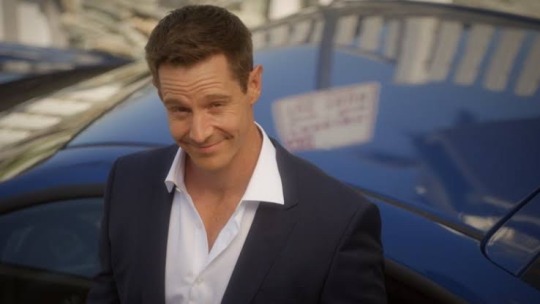
I can still remember the shock I felt when I reached the end of the screeners Hulu sent. The whole thing felt kind of surreal, like if I didn’t acknowledge what had happened out loud maybe it didn’t actually happen. But it did happen. And I’m still filled with a fiery rage and a deep sadness when I think about it now, nearly two years removed from the episode in question, because needlessly killing Logan was a betrayal of the worst kind. The character’s untimely demise felt engineered for nothing more than shock value, like it existed only to leave Veronica even more isolated and cynical. But the interviews that series creator Rob Thomas gave in the aftermath, in which he tried to defend the decision, revealed something much worse while only driving the knife he’d stuck in fans’ backs deeper.
“In order for us to keep doing these, I think it needs to become a detective show—a noir, mystery, detective show—and those elements of teenage soap need to be behind us,” Thomas told TV Guide of the decision to kill Logan, noting that he also hoped to take Veronica out of Neptune and on the road in potential future seasons. “I sort of viewed these eight episodes as a bridge to what Veronica Mars might be moving forward.”
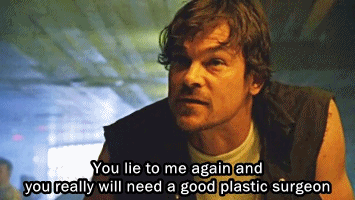
Instead of being a bridge to the future, it was a bridge to a grave of Thomas’ own making. Not since How I Met Your Mother ignored literal years of character development to deliver a half-cooked series finale the creators had come up with several years prior has a show felt so out of touch with its characters, the story it was telling, and its fans. Thomas’ decision to kill Logan is the perfect example of a creator being unable to recognize their own biases to the detriment of their creation.
He wrongly believed that Veronica needed to be hardened by years of nonstop torment and trauma in order to prove she was a great detective whose story was worth continuing. In putting her through the emotional wringer (again) after spending the entire season attempting to dig into her flaws and determine the root of her problems, Thomas swiftly undermined his heroine and her trauma with one misguided act of devastating violence. The fact that Thomas then chose to also skip over Veronica’s grieving process entirely reveals how little he ultimately thought of Logan or Veronica’s relationship with him, which had pushed her to be better and work through her longtime trust issues.
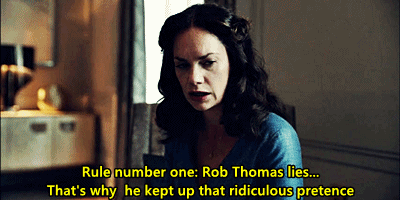
It is common knowledge by now that Logan was not intended to be Veronica’s love interest when the show debuted, but the fans took to the character more than they took to Teddy Dunn’s Duncan “He Used to Be My Boyfriend” Kane, so the latter was jettisoned from the show after Season 2. And in the end, Logan turned out to be a much better partner and match for Veronica’s personality. So what’s truly unfortunate about Thomas killing Logan, and killing him so violently, is that his thought process during Season 4 has the potential to color everything that happened in the show up until the moment the bomb went off. There is also the issue that Thomas apparently believed that Veronica achieving some level of romantic happiness was a one-way ticket to the grave, as if shows like Friday Night Lights hadn’t already soundly debunked the myth that happy couples did not make great TV.
Obviously an emotional family drama does not play by the same rules as noir, but Veronica Mars had already proven that you don’t need to play firmly within the sandbox of the genre to excel creatively. So why should the more adult version of the show attempt to put itself back in the box to be confined to something more traditional or stereotypical? Furthermore, love and contentment are not character flaws or weaknesses. They are not an element of “teenage soap,” as Thomas put it. In fact, one could argue that by allowing herself to believe that she and Logan could have a happy future together regardless of everything she’d witnessed in her line of work, Veronica had shown more personal and emotional growth in the show’s fourth season than she had in the entire run of the series.
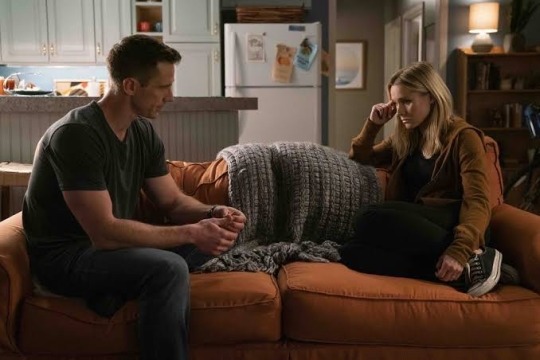
At the heart of the matter, though, is one simple, glaring truth: Logan’s death was a fundamental misreading of the entire Veronica Mars fandom and what they liked about the show. Storytelling should never be dictated by the fans and their desires—one of the loudest and most common complaints critics had about the movie was that it felt too much like Thomas was just giving the fans what they wanted rather than attempting to tell a good story—but when your fandom has dug their hands into the cold soil of the TV graveyard to raise your show from the dead, you should probably have a grasp on what exactly the fans like about it in the first place. After all, they’re the reason you still exist and will be one of the final arbiters of whether or not you get to continue to exist in the future. And the idea that fans would somehow be interested in watching a version of Veronica Mars in which Veronica was on the road, completely alone, and Logan was blown to bits is just a wild miscalculation.
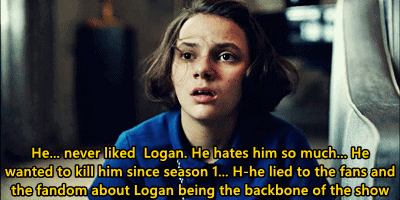
This isn’t to suggest Veronica Mars could not ever survive without Logan. That would be to undercut the rest of the show and the woman Veronica has become since we first saw her cutting Wallace (Percy Daggs III) off the flagpole in the series’ pilot. But there is a difference in writing Logan out of the show’s ongoing story arc—his secretive Naval career offered the perfect out—and violently killing him in an attempt to shock viewers and show just how resilient your heroine is in the face of trauma. A survivor of rape who had to solve the murder of her best friend (Amanda Seyfried) while still in high school because the sheriff’s department was too inept to do it (or simply did not care to do it), Veronica had already been through more in her young life than anyone should ever have to live through.
Although Logan’s death led to her finally seeing a therapist, it seemed to be a one-time thing, so nothing has really changed. Veronica is still the same person she was before the show returned, except now she’s also a widow and Thomas has alienated an entire fanbase to the point that many fans, though likely not all, have no interest in revisiting her story. And they’re not likely to either, since Hulu chose not to move forward with another season.
So much for that bridge to the future.
#Veronica Mars#Rob Thomas#Jason Dohring#Logan Echolls#VMars#season four#news#roast that bitch motherfuckers
76 notes
·
View notes
Text
Thank You, Disney Lucasfilm… For Destroying My Dreams
Warning: longer post.
~~~~~~~~~~~~~~~~~~~~~~~~~~~~~~~~~~~~~~~~~~~~~~~~~~~~
So… I watched The Rise of Skywalker on Disney+ a few weeks ago. Again.
Sigh.
I guess it has its good sides. But professional critics tend to dislike it and even the general audience doesn’t go crazy for it. I wonder why?
The Fantasy
When his saga became a groundbreaking pop phenomenon in the 1970es, George Lucas reportedly said that he wanted to tell fairy tales again in world that no longer seemed to offer young people a chance to grow up with them. The fact that his saga was met with such unabashed, international enthusiasm proves that he was right: people long for fairy tales no matter how old they are and what culture they belong to.
“Young people today don’t have a fantasy life anymore, not the way we did… All they’ve got is Kojak and Dirty Harry. All the films they see are movies of disasters and insecurity and realistic violence.” (George Lucas)
I’ve been a Star Wars fan for more than thirty years. I love the Original Trilogy but honestly it did not make me dream much, perhaps because when I saw it the trilogy was already complete. The Prequel Trilogy also did not inspire my fantasy.
The Last Jedi accomplished something that no TV show, book or film had managed in years: it made me dream. The richness of colorful characters, multifaceted themes, unexpected developments, intriguing relationships was something I had not come across in a long time: it fascinated me. I felt like a giddy teenager reading up meta’s, writing my own and imagining all sorts of beautiful endings for the saga for almost two years.
So if there’s something The Rise of Skywalker can pride itself on for me, it’s that it crushed almost every dream I had about it. The few things I had figured out – Rey’s fall to the Dark, Ben Solo’s redemption, the connection between them - did not even make me happy because they were tainted by the flatness of the storytelling reducing the Force to a superpower again (like the general audience seems to believe it is), and its deliberate ignoring of almost all messages of The Last Jedi.
Many fans of the Original Trilogy also were disillusioned by the saga over the decades and ranted at the studios for “destroying their childhood”. Now we, the fans of the sequels and in particular of The Last Jedi, are in the same situation… but the thought doesn’t make the pill much easier to swallow. What grates on my nerves is the feeling that someone trampled on my just newly found dreams like a naughty child kicking a doll’s house apart. Why give us something to dream of in the first place, then? To a certain extent I can understand that many fans would angrily assume that Disney Lucasfilm made the Sequel Trilogy for the purpose of destroying their idea of the saga. The point is that they had their happy ending, while every dream the fans of the Sequel Trilogy may have had was shattered with this unexpectedly flat and hollow final note.
I know many fans who dislike the Prequel Trilogy heartily. I also prefer the Original Trilogy, but I find the prequels all right in their own way, also since I gave them some thought. However, it can’t be denied that they lack the magic spark which made the Original Trilogy so special. Which makes sense since they are not a fairy tale but ultimately a tragedy, but in my opinion it’s the one of the main reasons why the Prequel Trilogy never was quite so successful, or so beloved.
Same goes for Rogue One, Solo, or Clone Wars. They’re ok in their way, but not magical.
The sequel trilogy started quite satisfyingly with The Force Awakens, but for me, the actual bomb dropped with The Last Jedi. Reason? It was a magical story. It had the spark again that I had missed in the new Star Wars stories for decades! And it was packed full of beautiful messages and promises.
The Force is not a superpower belonging solely to the Jedi
Anyone can be a hero.
Even the greatest heroes can fail, but they will still be heroes.
Hope is like the sun: if you only believe in it when you see it you’ll never make it through the night.
Failure is the greatest teacher.
It’s more important to save the light than to seem a hero.
No one is never truly gone.
War is only a machine.
Dark Side and Light Side can be unbeatable if they are allies.
Save what you love instead of destroying what you hate.
Naively, I assumed the trilogy would continue and end in that same magical way. And then came The Rise of Skywalker… which looks and feels like a Marvel superhero story at best and an over-long videogame at worst.
Chekov’s Gun
“Remove everything that has no relevance to the story. If you say in the first chapter that there is a rifle hanging on the wall, in the second or third chapter it absolutely must go off. If it’s not going to be fired, it shouldn’t be hanging there.”
(Anton Chekov, 1860 - 1904)
If you show an important looking prop and don’t put it to use, it leaves the audience feeling baffled. There is a huge difference between a story’s setup, and the audience’s feeling of entitlement. E.g. many viewers expected Luke to jump right back into the fray in Episode VIII, because that’s what a hero does, isn’t it? The cavalry comes and saves the day. And instead, we met a disillusioned elderly hermit who is tired of the ways of the Jedi. But there was no actual reason for disappointment: in Episode VII it was very clearly said (through Han, his best friend) that Luke had gone into exile on purpose, feeling responsible for his failure in teaching a new generation of Jedi. It would have been more than stupid to show him as an all-powerful and all-knowing man who kills the bad guys. Sorry but who expected that was a victim to his own prejudice.
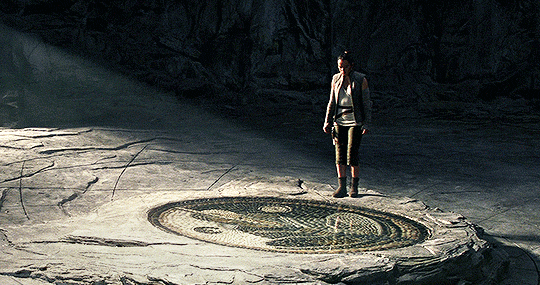
A promise left unfulfilled is a different story. The Last Jedi set up a lot of promises that didn’t come true in The Rise of Skywalker: Balance as announced by the Jedi temple mosaic, a new Jedi Order hinted at by Luke on Crait, a good ending for Ben and Rey set up by the hand-touching scene which was opposite to Anakin’s and Padmés wedding scene. Many fans were annoyed about the Canto Bight sequence. I liked it because it felt like the set-up for a lot of important stuff: partnership between Finn and Rose whom we see working together excellently, freedom for the enslaved children (one of whom is Force-sensitive), DJ and Rose expressing what makes wars in general foolish and beside the point. So if we, the fans of Episode VIII, now feel angry and let down, I daresay it’s not due to entitlement. We were announced magical outcomes and not just pew-pew.
The Star Wars saga never repeated itself but always developed and enlarged its themes, so it was to be expected that delving deeper, uncomfortable truths would come out: wars don’t start out of nowhere, and they don’t flare up and continue for decades for the same reason. In order to find Balance, the Jedi’s and the Skywalker family’s myths needed to be dismantled. Which is not necessarily bad as long it is explained how things came to this, and a better alternative is offered. The prequels explained the old political order and the beginnings of the Skywalker family, and announced that the next generation would do better. The sequels hardly explained anything about the 30 years that passed since our heroes won the battle against the Empire, and while The Last Jedi hinted at the future a lot, The Rise of Skywalker seemed to make a point of ignoring all of it.
The Skywalker Family Is Obliterated. Why?
Luke was proven right that his nephew would mean the end of everything he loved. The lineage of the Chosen One is gone. His grandson had begun where Vader had ended - tormented, pale and with sad eyes - and he met the same fate. Luke, Han, Leia, all sacrificed themselves to bring Ben Solo back for nothing. Him being the reincarnation of the Chosen One and getting a new chance should have been meaningful for all of them; instead, he literally left the scepter to Rey who did nothing to deserve it: merely because she killed the Bad Guy does not mean she will do a better job than the family whose name and legacy she proudly takes over.
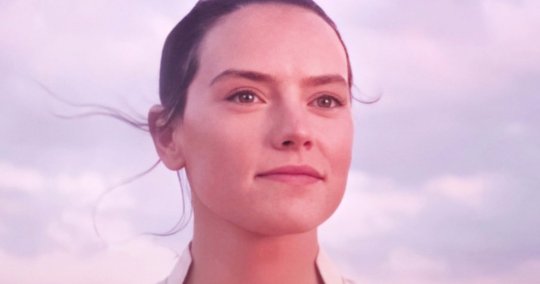
I do hope there was a good reason if the sequels did not tell “The New Adventures of Luke, Leia and Han” and instead showed us a broken family on the eve of its wipeout. It would have been much easier, and more fun for the audience, to bring the trio back again after a few years and pick up where they had left. Instead we had to watch their son, nephew and heir go his grandfather’s way - born with huge power, branded as Meant to Be Dangerous from the start, tried his best to be a Jedi although he wanted to be a pilot, never felt accepted, abandoned in the moment of his greatest need, went to his abuser because he was the only one to turn to, became a criminal, his own family (in Anakin’s case: Obi-Wan and Yoda) trained the person who was closest to him to kill him, sacrificed himself for this person and died. And in his case, it’s particularly frustrating because Kylo Ren wasn’t half as impressive a villain as Vader, and Ben Solo had a very limited time of heroism and personal fulfilment, contrarily to Anakin when he was young.
The impact of The Rise of Skywalker was traumatic for some viewers. I know of adolescents and adults, victims of family abandonment and abuse, who identified with Ben: they were told that you can never be more than the sum of your abuse and abandonment, and that they’re replaceable if they’re not “good”. Children identifying with Rey were told that their parents might sell them away for “protection”. Rey was not conflicted, she had a few doubts but overall, she was cool about everything she did, so she got everything on a silver platter; that’s why as a viewer, after a while you stopped caring for her. Her antagonist was doomed from birth because he dared to question the choices other people made for him. It seems that in the Star Wars universe, you can only “rise” if you’re either a criminal but cool because you’ve always got a bucket over your head (Vader / the Mandalorian) or are a saint-like figure (Luke / Rey).
One of Obi-Wan’s first actions in A New Hope is cutting off someone’s arm who was only annoying him; Han Solo, ditto. These were no acts of self-defense. The Mandalorian is an outlaw. Yet they are highly popular. Why? Because they always keep their cool, so anything they do seems justified. Young Anakin was hated, Jake Lloyd and Hayden Christensen attacked for his portrayal. For the same reason many fans feel that Luke is the least important of the original trio although basically the Original Trilogy is his story: it seems the general audience hates nothing more than emotionality in a guy. They want James Bond, Batman or Indiana Jones as the lead. Padmé loved Anakin because she always saw the good little boy he once was in him; his attempts at impressing her with his flirting or his masculinity failed. Kylo tried to impress Rey with his knowledge and power, but she fled from him - she wanted the gentle, emphatic young man who had listened to her when she felt alone. Good message. But both died miserably, and Ben didn’t even get anything but a kiss. Realizing that his “not being as strong as Darth Vader” might actually be a strength of its own would have meant much more.
The heroes of the Original Trilogy had their adventures together and their happy ending; the heroes of the Prequel Trilogy also had good times and accomplishments in their youth, before everything went awry. Rey, Finn and Poe feel like their friendship hardly got started; Rose was almost obliterated from the narrative; and Ben Solo seems to have had only one happy moment in his entire life. Of course it’s terrible that he committed patricide (even if it was under coercion), but Anakin / Vader himself had two happy endings in the Prequel Trilogy before he became the monster we know so well. Not to mention Clone Wars, where he has heroic moments unnumbered.
The Skywalker family is obliterated without Balance in the Force, and the young woman who inherited all doesn’t seem to have learned any lesson from all this. The Original Trilogy became a part of pop culture among other things because its ending was satisfying. We can hardly be expected to be satisfied with an ending where our heroes are all dead and the heir of their worst enemy takes over. What good was the happy ending of the Original Trilogy for if they didn’t learn enough from their misadventures to learn how to protect one single person - their son and nephew, their future?
For a long time, I also thought that the saga was about Good vs. Evil. Watching the prequels again, I came to the conclusion that it is rather about Love vs. War. And now, considering as a whole, I believe it to be essentially Jedi against Skywalker. The ending, as it is now, says that both fractions lost: they annihilated one another, leaving a third party in charge, who believes to be both but actually knows very little about them.
Star Wars and Morality
After 9 films and 42 years, it still is not possible to make the general audience accept that it is wrong to divide people between Good and Evil in the first place. The massive rejection of both prequels and sequels, which have moral grey zones galore, shows it.
It is also not possible without being accused of actual blasphemy in the same fandom, to say the plain truth that no Skywalker ever was a Jedi at heart. As their name says, they’re pilots. Luke was the last and strongest of all Jedi because he always was first and foremost himself. Anakin was crushed by the Jedi’s attempts to stifle his feelings. His grandson, too. A Force-sensitive person ought to have the choice whether they want to be a Jedi or not; they ought not to be taught to suppress their emotions and live only on duty, without really caring for other people; and they ought to grow up feeling in a safe and loving environment, not torn away from their families in infancy, indoctrinated and provided with a light sabre (a deadly weapon) while they’re still small. A Jedi order composed of child soldiers or know-it-all’s does not really help anybody.
The original Star Wars saga was about love and friendship; although many viewers did not want to understand that message. The prequels portrayed the Jedi as detached and arrogant and Anakin Skywalker sympathetically, a huge disappointment for who only accepts stories of the “lonesome cowboy” kind. The Last Jedi was so hated that The Rise of Skywalker backpedaled: sorry, of course you’re right, here you have your “hero who knows everything better and fixes everything for you on a silver platter”. The embarrassing antihero, who saves the girl who was the only person showing him some human compassion, can die miserably in the process and is not even mourned.
Honestly: I was doubtful whether it would be adequate to give Ben Solo a happy ending after the patricide. I guess letting him die was the easiest way out for the authors to escape censorship. (I even wrote this in a review on amazon about The Last Jedi, before I delved deeper into the saga’s themes.) The messages we got now are even worse.
Kylo Ren / Ben Solo
A parent can replace a child if they’re not the way they expect them to be.
A victim of lifelong psychical and physical abuse can only find escape in death, whether he damns or redeems himself.
An introspective, sensitive young man is a loser no matter how hard he tries either way.
A whole family can sacrifice itself to save their heir, he dies anyway.
Rey
Self-righteousness is acceptable as long as you find a scapegoat for your own failings.
Overconfidence justifies anything you do.
You can’t carve your way as a female child of “nobodies”, you have to descend from someone male and powerful even if that someone is the devil incarnate.
You are a “strong female” if you choose to be lonely; you need neither a partner nor friends.
In General
Star Wars is not about individual choices, loyalty, friendship and love, it is a classic Western story with a lonesome cowboy (in this case: cowgirl) at its centre. Satisfied?
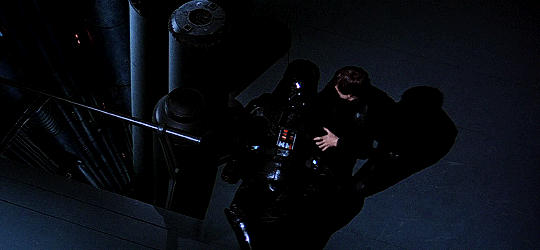
The father-son-relationship between Vader and Luke mirrors the Biblical story of Cain and Abel, saying that whoever we may want to kill is, in truth, our kin, which makes a clear separation in Good and Evil impossible. The “I am your father” scene is so infamous by now that even non-fans are aware of it; but this relationship between evil guy and good guy, as well as the plot turns where the villain saves the hero and that the hero discards his weapon are looked upon rather as weird narrative quirks instead of a moral.
In an action movie fan, things are simple: good guy vs. bad guy, the good guy (e.g. James Bond may be a murderer and a misogynist, but that’s ok because he’s cool about it) kills the bad guy, ka-boom, end of story. But Star Wars is a parable, an ambitious project told over decades of cinema, and a multilayered story with recurring themes.
A fairy tale ought to have a moral. The moral of both Original Trilogy and Prequel Trilogy was compassionate love - choose it and you can end a raging conflict, reject it and you will cause it. What was the moral of the Sequel Trilogy? You can be the offspring of the galaxy’s worst terror and display a similar attitude, but pose as a Jedi and kill unnecessarily, and it’s all right; descend from Darth Vader (who himself was a victim long before he became a culprit) and whether you try to become a Jedi trained by Luke Skywalker or a Sith trained by his worst enemy, you will end badly?
Both original and prequel trilogy often showed “good” people making bad choices and the “bad ones” making the right choices. To ensure lasting peace, no Force user ought to be believe that he must choose one side and then stick to it for the rest of his life: both sides need one another. The prequels took 3 films to convey this message, though not saying so openly. The Last Jedi said it out clearly - and the authors almost had their heads ripped off by affronted fans, resulting in The Rise of Skywalker’s fan service. It’s not like Luke, Han and Leia were less heroic in the Sequel Trilogy, on the contrary, they gave everything they had to their respective cause. They were not united, and they were more human than they had once been. Apparently, that’s an affront.
The Jedi are no perfect heroes and know-it-all’s and they never were, the facts are there for everyone to see. Padmé went alone and pregnant to get her husband out of Mustafar - and she almost succeeded - although she knew what he had done and that he was perfectly capable of it (he had told her of the Tusken village massacre himself) because she still saw the good little boy he had been in him; Obi-Wan left him amputated and burning in the lava, although he had raised Anakin like a small brother and the latter had repeatedly saved his life. But Padmé was not a Jedi, so I guess she still had some human decency. Neither Obi-Wan nor Yoda lifted a finger for the oppressed populations of the galaxy during the Empire, waiting instead for Anakin’s son to grow up so they could trick him into committing patricide. Neither Luke nor Leia did anything for their own son and nephew while he became the scourge of the galaxy, damning his soul by committing crime after crime. On Exegol, Rey heard the voices of all Jedi encouraging her to fight Palpatine to death. After that, they left her to die alone, and the alleged “bad guy”, who had already saved her soul from giving in to Palpatine’s lures, had to save her life by giving her his own. The Jedi merely know that “their side” has to win, no matter the cost for anyone’s life, sanity, integrity or happiness.
Excuse me, these are simple facts. How anyone can still believe that the Jedi were super-powerful heroes who always win or all-knowing wizards who are always right is beyond me. Luke, the last and strongest of them, like a bright flickering of light before the ultimate end, showed us that the best of men can fail. There is nothing wrong with that in itself. But it is wrong and utterly frustrating when all of the failure never leads to anything better. If Rey means to rebuild the Jedi order to something better than it was, there was no hint at that whatsoever.
And What Now?
The Last Jedi hit theatres only 2 years before The Rise of Skywalker, and I can’t imagine that the responsible authors all have forgotten how to make competent work in the meantime; more so considering that Solo or The Mandalorian are solid work. Episode IX is thematically so painfully flat it seems like they wanted us to give up on the saga on purpose. The last instalment of a 42-year-old saga ought to have been the best and most meaningful. I had heard already decades ago that the saga was supposed to have 9 chapters, so I was not among who protested against the sequels thinking that they had been thought up to make what had come before invalid. I naively assumed a larger purpose. But Episode IX only seems to prove these critics perfectly right.
The last of the flesh and blood of the Chosen One is dead without having “finished what his grandfather started”?
Still no Balance in the Force?
And worst of all, Palpatine’s granddaughter taking over, having proven repeatedly that she is not suited for the task?
Sorry, this “ending” is absurd. I have read fanfiction that was better written and more interesting. And, most of all, less depressing. I was counting on a conclusion that showed that the Force has all colours and nuances, and that it’s not limited to the black-and-white view “we against them”. That’s the ending all of us fans would have deserved, instead of catering the daddy issues of the part of the audience who doesn’t want stories other than those of the “lonesome cowboy” kind. I myself grew up on Japanese anime, maybe that’s one of the reasons why I can’t stand guys like James Bond or Batman and why I think you don’t need “a great hero who fixes the situation” but that group spirit and communication are way more important.
It was absolutely unexpected that Disney, the production company whose trademark are happy endings and family stories, would end this beloved and successful saga after almost half a century on such a hollow note. Why tell first a beautiful fairy tale and then leave the audience on a hook for 35 years to continue first with a tragedy (which at least was expected) and then with another (unexpected one)? And this story is supposed to be for children? Like children would understand all of the subtext, and love sad, cautionary tales. Children, as well as the general audience, first of all want to be entertained! No one wants to watch the legendary Skywalker family be obliterated and a Palpatine take over. The sequels were no fun anymore; we’ve been left with another open ending and hardly an explanation about what happened in the 30 years in between. If you want to tell a cautionary tale, you should better warn the general audience beforehand.
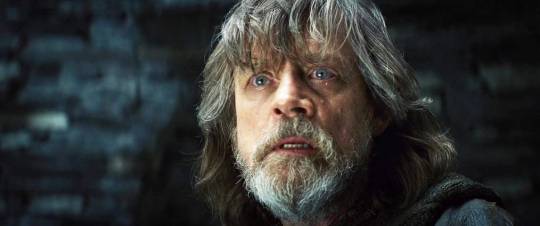
The Original Trilogy is so good because it’s entertaining and offers room for thought for who wants to think about its deeper themes, and also leaves enough space for dreams. Same goes for the first two films of the Sequel Trilogy; but precisely the last, which should have wrapped up the saga, leaves us with a bitter aftertaste and dozens of questions marks.
We as the audience believe that a story, despite the tragic things that happen, must go somewhere; we get invested into the characters, we root for them, we want to see them happy in the end. (The authors of series like Girls, How I Met Your Mother or Game of Thrones ought to be reminded of that, too.) I was in contact with children and teenagers saying that the Sequel Trilogy are “boring”; and many, children or adults, who were devastated by its concluson. There is a difference between wanting to tell a cautionary tale and playing the audience for fools. This trilogy could have become legendary like the Original Trilogy, had it fulfilled its promises instead of “keeping it low” with its last chapter. Who watches a family or fantasy story or a romantic / comedic sitcom wants to escape into another world, not to be hit over his head with a mirror to his own failings, and the ones of the society he’s living in. Messages are all right, but they ought not to go at the cost of the audience’s satisfaction about the about the people and narrative threads they have invested in for years.
This isn’t a family story: but children probably didn’t pester the studios with angry e-mails and twitter messages etc. They simply counted on a redemption arc and happy ending, and they were right, because they’re not as stupid as adults are. I have read and watched many a comment from fans who hate The Last Jedi. Many of these fans couldn’t even pinpoint what their rage was all about, they only proved to be stuck with the original trilogy and unwilling to widen their horizon. But at least their heroes had had their happy ending: The Rise of Skywalker obliterated the successes of all three generations of Skywalkers.
If the film studios wanted to tease us, they’ve excelled. If they expect the general audience to break their heads over the sequels’ metaphysics, they have not learned from the reactions to the prequels that most viewers take these films at face value. Not everybody is elbows-deep in the saga, or willing to research about it for months, and / or insightful enough to see the story’s connections. Which is why many viewers frown at the narrative and believe the Sequel Trilogy was just badly written. This trilogy could have become legendary like the Original Trilogy, had it fulfilled its promises instead of “keeping it low” with its last chapter. As it is now, the whole trilogy is hanging somewhere in the air, with neither a past nor a future to be tied in with.
The prequels already had the flaw of remaining too obscure: most fans are not aware that Anakin had unwillingly killed his wife during the terrible operation that turned him into Darth Vader, sucking her life out of her through the Force: most go by “she died of a broken heart”. So although one scene mirrors the other, it is not likely that most viewers will understand what Rey’s resurrection meant. And: Why did Darth Maul kill Qui-Gon Jinn? What did the Sith want revenge for? Who was behind Shmi’s abduction and torture? Who had placed the order for the production of the clones, and to what purpose? We can imagine or try to reconstruct the answers, but nothing is confirmed by the story itself.
The sequels remained even more in the dark, obfuscating what little explanation we got in The Rise of Skywalker with quick pacing and mind-numbing effects.
Kylo Ren had promised his grandfather that “he would finish what he started”: he did not. Whatever one can say of this last film, it did not bring Balance in the Force. What’s worse, the subject was not even breached. It was hinted at by the mosaic on the floor of the Prime Jedi Temple on Ahch-To, but although Luke and Rey were sitting on its border, they never seemed to see what was right under their noses. It remains inexplicable why it was there for everyone to see in the first place.
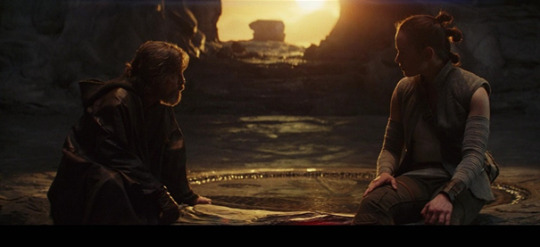
We might argue that Ben finished what his grandfather started by killing (or better, causing the death of) the last Jedi, who this one couldn’t kill because he was his own son; but leaving Rey in charge, he helped her finish what her grandfather had started. The irony could hardly be worse.
Episode IX looks like J.J. Abrams simply completed what they started with Episode VII, largely ignoring the next film as if it was always planned to do so. We, the angry and disappointed fans of The Last Jedi, may believe it was due to some of the general audience’s angry backlash, but honestly: the studios aren’t that dumb. They had to know that Episode VIII would be controversial and that many fans would hate it. The furious reactions were largely a disgrace, but no one can make me believe that they were totally unexpected. Nor can anyone convince me that The Rise of Skywalker was merely an answer to the small but very loud part of the audience who hated The Last Jedi: a company with the power and the returns of Disney Lucasfilm does not need to buckle down before some fan’s entitlement and narrowmindedness out of fear of losing money. And if they do, it was foolish to make Rey so perfect that she becomes almost odious, and to let the last of the Skywalker blood die a meaningless death. (Had he saved the Canto Bight children and left them with Rey, at least he would have died with honor; and she, the child left behind by her parents, would have had a task to dedicate herself to.)
The only reason I can find for this odd ending is that it’s meant to prepare the way for Rian Johnson’s new trilogy, which - hopefully - will finally be about Balance. We as the audience don’t know what’s going on behind the doors. Filmmaking is a business like any other, i.e. based on contracts; and I first heard that Rian Johnson had negotiated a trilogy of his own since before Episode VIII hit theatres. Maybe he kept all the rights of intellectual property to his own film, including that he would finish the threads he picked up and close the narrative circles he opened, and only he; and that his alleged working on “something completely different” is deliberately misleading.
Some viewers love the original trilogy, some love the prequels, some like both; but I hardly expect anyone to love the sequel trilogy as a whole. What with the first instalment “letting the past die, killing it if they had to”, the second hinting at a promising future and the third patched on at the very last like some sort of band-aid, it was not coherent. I heard the responsible team for Game of Thrones even dropped their work, producing a dissatisfying, quickly sewn together last season, for this new Star Wars project and thereby disappointing millions of GoT fans; I hope they are aware of the expectations they have loaded upon them. George Lucas’ original trilogy had its faults, but but though there was no social media yet in his time, at least he was still close enough to the audience to give them what they needed, if not necessarily wanted. (Some fans can’t accept that Luke and Leia are siblings to this day, even if honestly, it was the very best plot twist to finish their story in a satisfying way.)
I’m hoping for now that The Last Jedi was not some love bombing directed at the more sentimental viewers but a promise that will be fulfilled. “Wrapping up” a saga by keeping the flattest, least convincing chapter for last is bad form. Star Wars did not become a pop phenomenon by accident, but because the original story was convincing and satisfying. Endings like these will hardly make anyone remember a story fondly, on the contrary, the audience will move to another fandom to forget their disappointment.
On a side note, I like The Mandalorian, exactly for the reason that that is a magical story; not as much as the original trilogy, but at least a little. Of course, I’m glad it was produced. But it’s a small consolation prize after the mess that supposedly wrapped up the original saga after 9 films.
We’re Not Blind, You Know…
- Though Kylo Ren (Ben Solo) has Darth Vader’s stature, his facial features are practically opposite to Vader’s creepy mask. This should have foreshadowed that his life should have gone the other way, instead of more or less repeating itself.
- As a villain Kylo was often unconvincing; by all logic he should have been a good father figure. (Besides, Star Wars films or series never work unless there is a strong father or father figure at their center.)
- Like Vader, Kylo Ren was redeemed, but not rehabilitated. Who knows who may find his broken mask somewhere now and, not knowing the truth, promise “I will finish what you started”.
- The hand-touching scene on Ahch-To which was visually opposite to Anakin’s and Padmé’s should not have predicted another tragedy but a happy ending for them.
- The Canto Bight sequence was announcing reckoning for the weapon industry and freedom for the enslaved children. It also showed how well Finn and Rose fit together.
- Rey was a good girl before she started on her adventures. Like Anakin or Luke, she did not need to become a Jedi to be strong or generous or heroic.
- Rey summons Palpatine after one year of training. Kylo practically begged for his grandfather’s assistance for years, to no avail. Her potential for darkness is obviously much stronger.
- Dark Rey’s light sabre looked like a fork, Kylo’s like a cross.
- The last time all Jedi and Sith were obliterated leaving only Luke in charge, things went awry. Now we have a Palpatine masquerading as a Skywalker and believing she’s a Jedi. Rey is a usurper and universally cheered after years of war, like her grandfather.
- The broom boy of Canto Bight looked like he was sweeping a stage and announcing “Free the stage, it’s time for us, the children.”
Rey failed in all instances where Luke had proved himself (so much for feminism and her being a Mary Sue):
- Luke had forgiven his father despite all the pain he had inflicted on him. She stabbed the „bad guy”, who had repeatedly protected and comforted her, to death.
- Luke never asked Vader to help the Rebellion or to turn to the Light Side, he only wanted him back as his father. She assumed that you could make Ben Solo turn, give up the First Order and join the Resistance for her. She thought of her friends and of her own validation, not of him.
- Luke had made peace by choosing peace. Rey fought until the bitter end.
- Luke had thrown his weapon away before Palpatine. Rey picked up a second weapon. (And both of them weren’t even her own.)
- Luke had mourned his dead father. Rey didn’t shed a tear for the man she is bonded to by the Force.
- Luke went back to his friends to celebrate the new peace with them. Rey went back letting everyone celebrate her like the one who saved the galaxy on her own, she who were tempted to become the new evil ruler of the galaxy and had to rely on the alleged Bad Guy to save both her soul and her body.
- Luke had embodied compassion when Palpatine was all about hatred. Where he chose love and faith in his father, she chose violence and fear.
- Luke had briefly fallen prey to the Dark Side but it made him realize that he had no right to judge his father. Rey’s fall to the Dark Side did not make her wiser.
- Rey has no change of mind on finding out that she’s Palpatine’s flesh and blood, nor after she has stabbed Kylo. Luke had to face himself on learning that he had almost become a patricide. Rey does not have to face herself: the revelation of her ancestry is cushioned by Luke’s and Leia’s support. Rey is and remains an uncompromising person who hardly learns from her faults.
This is cheating on the audience. And it's not due to feminism or Rey being some sort of “Mary Sue” the way many affronted fans claim. Kylo never was truly a villain, Rey is not a heroine, and this is not a happy ending. The Jedi, with their stuck-up conviction “only we must win”, have failed all over again. The Skywalker family was obliterated leaving their worst enemy in charge. Rey is supposed to be a “modern” heroine which young girls can take as an example? No, thank you. Not after this last film has made of her. Padmé was a much better role model, combining intelligence with strength and goodness and also female grace. The world does not need entitled female brats.
Bonus: What Made The Rise of Skywalker a Farce
- The Force Awakens was an ok film and The Last Jedi (almost) a masterpiece. The Rise of Skywalker was a cartoon. No wonder a lot of the acting felt and looked wooden.
- “I will earn your brother’s light sabre.” She’s holding his father’s sabre.
- Kylo in The Last Jedi: “Let the past die. Kill it if, you have to.” Beginning with me?
- Rey ends up on Tatooine. - The planet both Anakin and Luke ardently wanted to leave.
- Luke had promised his nephew that he would be around for him. - Nope.
- Rey had told Ben that she had seen his future. What future was that - “you will be a hero for ten minutes, get a kiss and then die? (And they didn’t even get a love theme.)
- “The belonging you seek is not behind you, it is ahead.” On a desert planet with a few ghosts. What of the ocean she used to dream about?
- Ben and Rey were both introduced as two intensely lonely people searching for belonging. We learn they are a Force dyad, and then they are torn apart again.
- Why was Ben named for Obi-Wan Kenobi in the first place, if they have absolutely nothing in common?
- The Throne Room battle scene in The Last Jedi was clearly showing that when they are in balance, Light Side and Dark Side are unbeatable. Why did the so-called “Light Side” have to win again, in The Rise of Skywalker, instead of finding balance?
- Luke’s scene on Ahch-To was so ridiculously opposite to his attitude in The Last Jedi that by now I believe he was a fantasy conjectured by her. (Like Ben’s vision of his father.)
- Anakin’s voice among the other Jedi’s. - He was a renegade, for Force’s sake.
- The kiss between two females. - More fan service, to appease those who pretended that not making Poe and Finn a couple was a sign of homophobia.
- We see the Knights of Ren, but we learn absolutely nothing about them or Kylo’s connection with them.
- Rose Tico’s invalidation. - A shame after what the actress had gone through because for the fans she was “not Star-Wars-y” (chubby and lively instead of wiry and spitfire).
- Finn’s and Rose’s relationship. - Ignored without any explanation.
- Finn may or may not be Force-sensitive. - If he is: did he abandon the First Order not due to his own free will but because of some higher willpower? Great.
- General Hux was simply obliterated. - In The Force Awakens he was an excellent foil to Kylo Ren; no background story, no humanization for him.
- Chewie’s and 3PO’s faked deaths. - Useless additional drama.
- The Force Awakens was a bow before the classic trilogy. The Rise of Skywalker kicked its remainders to pieces.
- The Prequel Trilogy ended with hope, the Original Trilogy with love. The Sequel Trilogy ends on a blank slate.
- “We are what they grow beyond.” The characters of the Sequel Trilogy did not grow beyond the heroes of the Original Trilogy.
- The Jedi did not learn from their mistakes and were obliterated. The Skywalker family understood the mistakes they had made too late. Now they’re gone, too.
P.S. While I was watching The Rise of Skywalker my husband came in asked me since when I like Marvel movies. I said “That’s not a Marvel movie, it’s Star Wars.” I guess that says enough.
P.P.S. For the next trilogy, please at least let the movies hit theatres in May again instead of December. a) It’s tradition for Star Wars films, b) Whatever happens, at least you won’t ruin anyone’s Christmases. Thank you.
#star wars#disney#disney lucasfilm#star wars sequels#the force awakens#the rise of skywalker#rey palpatine#kylo ren#ben solo#reylo#bendemption#luke skywalker#anakin skywalker#darth vader#marvel movies#finn#rose tico#george lucas#obi-wan kenobi#yoda#the mandalorian#rogue one#clone wars#han solo#leia organa#anton chekov#read more#the last jedi#sw
419 notes
·
View notes
Text
lol okay so I dashed off most of this the day of and then kept not posting it because I kept thinking I needed to add stuff, but then I ended up adding more stuff mostly in reblogs instead (should all be under the “my meta” tag if anyone’s curious) and now episode 2 is technically coming out tomorrow night in my time zone so obviously I need to just post this. bullet points of disconnected thoughts, some of which are probably at least slightly outdated by now but whatever, here you go
seems very possible Mobius left the tape with him on purpose because he figured Loki wouldn’t be able to resist looking at it
would have to check the timing but I’m pretty sure he started looking terrified as soon as Thanos came onscreen without really knowing the context (aside from the very basic outline of “it’s been several years and he reconciled with Thor”), which at least underscores that they weren’t buddies--Loki knew something awful was about to happen the second Thanos showed up sadly this is not true, the clip he sees first is him trying to stab Thanos, so...yeah it stands to reason that he’d know it was about to end badly no matter what
other people have mentioned this but I love that we got to see Loki just like...existing?? like I know he’s never been the protagonist before and seeing him as the protagonist has always been one of the things that’s excited me most about the show, but now that it’s here I’m just kind of struck by how HE’S THE PROTAGONIST so we’re getting all these emotions and little gestures and moments when he’s alone that we only got in tiny, sadly easy-to-overlook snatches before (and it also occurred to me that I don’t think we’ve ever seen Loki eat anything, which is something else that might change)
also his projection is fascinating, and so is the fact that he explicitly turned it around on himself, which seems relevant to all the theories about a lot of his other statements (”freedom is life’s great lie,” most of what he said to Natasha, etc.) being things that were drummed into him on Sanctuary rather than stuff he just came up with on his own, so that seems to cover a lot of the stuff he says in Avengers and here
on the other hand it seems unlikely we’re ever going to get confirmation that Bad Stuff happened to him on Sanctuary aside from what we already saw in Avengers, which is frustrating, although to be fair I also wasn’t expecting to see Loki crying about his family in the first episode (and the most I’m really hoping for, still, is that nothing will explicitly contradict the idea, so...we’re good on that thus far, I guess)
so the first half of the episode was...ehhh, I don’t know, but the second half was amazing. I know some people didn’t like that part either, but I felt like...okay, I don’t love him being humiliated so I would’ve preferred different framing for some of this BUT a lot of casual viewers still see Loki as a cackling caricature without having picked up on any of the stuff that very clearly showed otherwise, and this show wants to treat Loki as a person, someone worthy of audience sympathy, so they kind of had to go in hard and fast on that aspect to get everyone up to speed. like, yes, fans who’ve been paying attention know that Loki’s a person, that he’s wounded, that he doesn’t hurt people just because it’s fun for him, that he feels things very deeply, that he loves his family, but somehow the mainstream perception of him has missed like 85% of that, and the show’s just not going to have much impact unless it gets everybody on board with those very basic ideas. in terms of story structure it probably doesn’t make sense for this to be his lowest point, but starting from the bottom and eventually getting somewhere better is fairly standard, so at this point I can imagine tons of ways things could improve for him
yeah I do hate the whole Sacred Timeline thing, see also my posts about how much I loved that Endgame canonically (I thought) established multiple timelines where everything was fine, so yeah I’m pissed about that because it means those timelines were canonically pruned
like I don’t...hate it as a storytelling device? I just hate it for fandom reasons, and I’ve hated it in other fandoms when canon did something that seemed to open things up to all this incredible possibility and then went “actually no, we’re boxing it up again into this one specific Way That Things Happened” and for fanwork purposes it doesn’t matter all that much, I don’t think it’s actually that much harder to do AUs or go “okay well in this universe the TVA doesn’t exist, whatever” (in fact I wouldn’t be surprised if AO3 quickly develops a new canonical “not TVA compliant” tag for basically all Loki fic), but it is annoying that it’s now like “canonically, every AU is Not Allowed”, and if that ends up sticking as the status quo with the TVA considered good guys or at least a necessary evil then yeah, I’m going to be annoyed
HOWEVER
I don’t think that’s inevitable for a variety of reasons
this whole show is going to deal with multiverse shenanigans and so will Dr. Strange 2, so it seems completely possible that the end result could be a status quo of “there’s a multiverse actually and that’s fine” (...although yes, I’ll be doubly annoyed if the end result of this show is a restored multiverse of some kind and the end result of Dr. Strange 2 is condensing it back down to a single timeline)
the multiverse is a long-running comics tradition, which still seems to be the case even after...whatever event it was that collided a bunch of them and tried for a Highlander thing, look I wasn’t really following it and I know some characters ended up in other universes from where they started but I’m pretty sure we still have a multiverse of some kind
almost all the recent Loki-centric comics have focused on questions of fate and agency
Agent of Asgard in particular was about Loki eventually going “fuck you I won’t do what you tell me” and forging a new path (and, okay, it does seem like runs other than AoA have been the most influential here but again we’ve only seen one episode)
Loki, specifically, is an agent of chaos and change, like that’s his whole thing going way back to mythology, because sometimes stagnancy is death and chaos is healthy, and of course myth!Loki (and earlier versions of comics!Loki) is always responsible for triggering Ragnarok, which isn’t just the end of the world but is also a natural, crucial part of a cycle of renewal, and yes the MCU already did Ragnarok but that doesn’t at all mean they can’t play more with those ideas
Tom Hiddleston has brought up this specific point several times in recent interviews, that sometimes chaos is the one thing that's really needed
also, on Jimmy Kimmel the day of the episode, he kind of...planted a seed about the TVA maybe not being uncomplicated good guys because seriously what gives them the right to make these decisions for literally everyone
so at the very least I think it’s completely possible that things aren’t quite what they seem, and that for instance we’re supposed to discover that Mobius is consciously manipulating him to turn him into the type of tool the TVA wants him to be
also “the timeline wants to break free” shows up on a lot of merch, which does seem to indicate a free will vs. predestination theme
I’m not at all familiar with comics!TVA, although I understand they’re considered villains (although to be fair, so were the Skrulls, and at least thus far that’s been inverted for the MCU), but their whole thing reminded me of a few other entities in a way that could be relevant:
the tape running out was like the Norns cutting the thread of somebody’s life
Those Who Sit Above In Shadow in AoA (and also maybe whatever was below the God Quarry in Infinity Wars although I’m less familiar with that)
the gods in Cabin In The Woods, who were also kind of audience proxies in that they really just cared about the sacrifice being entertaining, which kinda seems like the only logical reason for the Timekeepers to prefer any given series of events over another
my personal hope for the series: the Timekeepers are ultimately the Big Bad and the rogue Loki variant is ultimately right in trying to wipe out the TVA (because sure I realize it’s maybe dumb of me but I still don’t want any Loki to be completely a bad guy!!); the major named TVA characters realize they’re the baddies actually and team up with a whole army of Lokis to take them down and GIVE US BACK OUR MULTIVERSE
#meta#my meta#loki meta#loki spoilers#loki series spoilers#loki show spoilers#loki show#loki#marvel cinematic universe
11 notes
·
View notes
Text
Slave to the Quill: Salem, Authorship, Control, and the Fallacy of Happy Endings
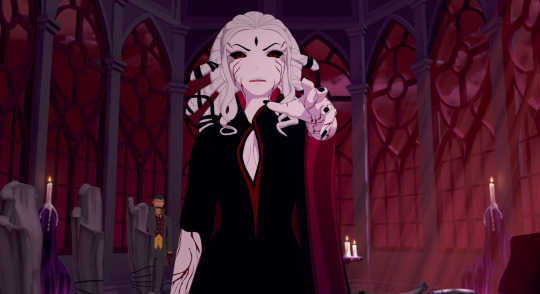
This post is part one in a four part series on Ozma and Salem called Greater Scale Forces, so expect more from me on the subject in the weeks to come. WARNING - in addition to RWBY, there are small references for the following series: Crazy Ex-Girlfriend, Bojack Horseman, and Community.
Once upon a time there stood a lonely tower that sheltered a lonely girl named Salem. She was freed by the legendary hero Ozma, who succeeded where warriors before him had failed. Salem wasn’t just rescued by the Ozma by chance. As Fairy Tales of Remnant reveals, Salem wrote her way out of her prison through story and narrative inspired by the fairy tales she had read in her adolescence. She tossed fliers out her window with her story and plight etched in ink to gain a hero’s sympathy. In this way, Salem not only asserted her agency but set up expectations for herself that motivated her grasp for control, inadvertently caused an apocalypse, and more importantly placed “story” and “myth” at the center of Remnant’s development as a fictional setting.
Salem was reared off fairy tales, a result of being trapped in her tower for her formative years. Her socialization was limited to inconsistent visits from her emotionally distant father and her kindly nanny, with no playmates her age. Fairy Tales of Remnant pulls no punches in elaborating on how this affected Salem’s aspirations for life. To quote: “[Salem] lived hundreds of lives through other people’s stories, and [dreamed] of venturing beyond the tower one day, finding true love, and becoming a kind and generous queen with her own castle and daughters” (106). Salem’s dream is a textbook fairytale happy endings, and she wants her life to play out just like the stories she’s read. When her dreams are confirmed in her rescue by Ozma, is it any surprise that his death shattered her in such a way to defy gods? Not only was Ozma her only living emotional connection due to her upbringing, but her rescue had all but confirmed that she deserved a happy ending, that she played a role in which freedom and true love were deserved as per story structure and narrative.
Salem’s actions all arguably move to appeal to fairy tale narrative archetypes in some way. In “The Girl in the Tower” she plays the damsel in distress, nudging her narrative onwards with her fliers but waiting patiently until the day she is rescued. When dealing with the gods, she at first plays the humble acolyte, praising both brothers to get what she wants as one would in a myth. When they curse her instead of raising Ozma, she picks up a different mantle of righteous leader and inspirer. Then after the earth’s destruction she becomes a wanderer, then a witch, and then a goddess. While she vies for freedom, a goal nurtured from her initial entrapment, it is ironic that Salem in some ways traps herself in the confines of the story itself, allowing story structure to trap her into roles that dissuade her from personal growth unique and separate from media archetypes.
In addition to being motivated by fairy tales and trapped in its narrative, Salem also uses narrative and media as a weapon in RWBY. This is addressed in Ozpin’s end notes of “The Girl in the Tower” in Fairy Tales of Remnant when he points out that Salem’s use of fliers to free herself from her tower as a technical form of “propaganda.” While used for a generally tame purpose in this case, Salem’s approach to media and fairy tale as a form of control, as a form of propaganda, only appears to evolve as her experience continues. Her method of influencing fellow humans to rise up against the gods is by storytelling. As we can recall from “The Lost Fable,” Salem lied and weaved a tale in which she stole immortality from the gods to convince other humans against the Brothers Grimm. As a goddess-queen with Ozma 2.0, it is likely she also acted through fairy tale narrative as well. She has statues built up of her and her husband. She depicts them as hero-ruler-gods. During the Fall of Beacon, she has Cinder hijack and take down Remnant’s communications’ systems so the media and narrative is controlled by her agenda. While Salem is ultimately harmed from her reliance on story and narrative, it is interesting that she also finds agency through authorship and through embarrassing narrative (albeit in a toxic way).
Salem’s personal entanglement with the structure of fairy tales is arguably further represented through the use of Remnant as RWBY’s setting. Remnant is a literal reflection of fairy tales with an added dose of realism. While its characters and culture call back to ancient tales, they live more mundane, less magical lives than those we know from the Grimm fairy tales. Being a hero is an occupation. Magic is commodified and sold as dust. In this way, Remnant reflects Salem’s dilemma well. Remnant forces her to further confront a world with wonder that lacks a “fair” narrative with a happy ending. I don’t know what came first, Salem’s backstory or Remnant’s concept as a fairy tale call back itself (likely Remnant?). However, I will make the point that Salem’s backstory fits well into the world of RWBY through her interaction with the medium of fairy tales. I commend CRWBY on this achievement.
I make note that the pattern of a character’s engrossment in story narrative is a recurring flaw in figures in serialized television. I can think of a few examples of this. Rebecca Bunch from Crazy Ex-Girlfriend, for example, is an anti-hero influenced by musical convention and genre, drawing her expectations for romantic relationships from pop culture: musicals, boy-bands, and rom-coms. Her delusion with cultural media is shown through the show's musical numbers, meant to play out in Rebecca’s head. Bojack from Bojack Horseman similarly engages with celebrity, film, and Hollywood culture in a similar way, engaging with the media as a literal actor while coincidentally obsessing over celebrity as a child through his obsession with race-horse Secretariat. Abed Nadir from Community also bases his social interactions on the US pop culture he absorbed as a child. I think it’s interesting that all these characters who take their cues from the media of their childhood also had traumatic and abusive upbringings (I won’t spoil though). In this way, media takes adjacent blame with these characters’ guardians for misbehavior, ranging from awkward to harmful to world-ending. How these characters evolve through these shows and their changing relationship with the media they rely on provide meta commentary on our individual relationship with culture and story. Rebecca Bunch learns to use pop music as a way to counter romantic expectations for women rather than embrace them as pop music is usually used, a positive message about our relationship with story and media. Bojack’s ending is left ambiguous, but Hollywood’s sway on him is definitely a toxic presence, leading us to believe we should consider rejecting this institution. Abed learns to combine his pop culture obsession with real relationships and become appreciated as a person and better interact with others (also a more hopeful message about media and story).
Like all these character’s before, what does Salem’s story tell us? What will it tell us as more seasons of RWBY come out? Certainly, RWBY doesn’t have a toxic view of fairy tales. Our principal protagonists are positively inspired by them. Ruby wants to be a hero like in all the stories she’s read. Ozpin collects a book of stories from multiple locations from multiple stories. I think where we see the difference is how our protagonists interact with fairytales and how our antagonists (or specifically those under Salem’s mentality) do. Ruby, Ozpin, and our heroes follow fairy tales as a moral standard. The aspire to have good triumph and act to a higher standard through effort and sacrifice. Salem uses fairy tales as a form of wish-fulfilment and totalitarian control. I think the inherent message of RWBY is that we need to respect the lessons learned through story but abandon the structure and endings stories give us. Act like a hero, but live a real life. And, at the same time, be wary of the narratives that surround you. Don’t just copy a narrative, understand the narratives produced and adhere to the best and wisest ones. Think through a text, don’t just take it at face value. That’s the lesson we should learn from Salem’s mistakes.
Let me know your thoughts and if you think I missed anything. Expect Part 2 - The Circle: Oz, Identity, Myth, and The Hero’s Journey, within a week.
70 notes
·
View notes
Note
What elements make B/E such an obvious romantic obstacle to B/C, narratively, etc?
A lot really. I mean, first, with that time jump, we needed to see that Bellamy had grown and moved on from the trauma of earth. Who better to show that transformation than the grounder who represented betrayal and brutality and murder and war to him? The one who betrayed him and almost killed his sister and held him captive. To forgive HER means he’s over the s3 bizness where he treated all grounders as the enemy who deserved death just for existing in some cases. We SAW him learn the lessons, but with the time jump and B/E he now INHABITS it. He’s grown from it.
There’s also the parallels between CL and B/E. first alliance, then betrayal, then kidnapping, then working together, then saving from sucide, then forgiveness, then love. I know some people consider CL to be endgame, but my theory here is based on CL being over, for important reasons within the narrative. So to parallel two relationships that are important and transformative, but not endgame, and to show the longer pace of B/E which shows that Bellamy was healthier than Clarke was, is a sign of character development.
Bellamy needed a relationship in order to move forward on the ship, so he wasn’t a wreck. He needed to be a whole person, who COULD live without Clarke, because the Bellarke relationship is a relationship of equals, and it’s NOT codependent. They don’t fill in the holes of the other person. They are not INCOMPLETE without each other, They needed to be shown as complete people on their own. So showing that he’d not been destroyed by her loss meant having him accept love, accept that he deserved love. Therefore, he needed a healthy relationship.
OKAY. This turned out to be A TOTAL EPIC post. And it’s too long so after the jump. STay tuned.
IT COULD NOT BE RAVEN. Wanna know why? Because Raven has her own journey. And she CAN NOT be second choice, because of her problems with finn and clarke in s1. Raven needs someone to be head over heels over her, if she’s going to have anyone. And if Bellamy had been in a relationship with Raven, CLARKE would always be standing between them. And with Clarke’s resurrection, Bellamy’s SOULMATE, Raven would be cast into second place, thus ruining Raven’s character arc, and putting Clarke into the SAME narrative of being the other woman, without any development. This would be a failure of storytelling, lacking growth and transformation which is NECESSARY for this story.
As long as Bellarke is endgame, Br/aven could NOT happen. If Bellarke is NOT endgame, Br/aven is actually the CLEAR AND OBVIOUS choice for Bellamy’s next relationship. They already love and respect and like each other. Raven is a major character. The audience loves and wants them both happy. If Bellarke were not endgame, then Br/aven would have been. If Bellarke were PLATONIC, for real? Then Br/aven should have been developing all this time. But since Bellarke is an endgame romance, Br/aven CAN NOT happen romantically.
THUS they needed a character to be his romance, to show him moving on, but it couldn’t be a character who was TOO essential that we would replace Bellarke with that ship, as would have happened with br/aven. Although it also needed to be a character who was tied to the major issues we’ve been dealing with, someone who maybe reminds him a little of Clarke even. Enter Echo. betrayals, ruthless, sneaky, beautiful, cheated in the conclave, almost killed his sister, does whatever she has to to save her people, loyal.
I’d also like to bring up Echo’s name. And I think her name DOES matter. At first I thought it was because she was an ECHO of CL and that betrayal for Bellamy. The myth of Echo, as the nymph who pined after Narcissus didn’t make sense to me, as Bellamy wasn’t a narcissist in love with his own reflection... UNTIL someone made the point that the classical concept of soulmates was one soul split into two bodies, so a person and their reflection COULD be a metaphor for this soulmate concept. Which made Bellamy in love with his reflection/soullmate Clarke, which now ENTIRELY fit the Echo and Narcissus myth. Echo is in love with Bellamy who is obsessed with his soulmate Clarke (who in s6 was ‘behind the glass’ like a mirror image! huh. Who was it that posted that theory!? that sounds like a confirmation to me.) Now again, Clarke and Bellamy are separated by this distance, and Echo goes in to find him? I hope Echo doesn’t fade away like her namesake did, but it’s possible. But Narcissus also dies at the river, in love with his reflection, becoming flowers, right? This actually fits my spec that Bellarke will “die” but in reality just be separated from their family and live out their lives in pastoral happily ever after. Anyway. The myth of Echo and Narcissus, means Echo is NOT the soulmate.
Also. JR said Clarke and Bellamy were soulmates. And fine, I don’t use commentary in my analysis... but I do if it fits, and this fits. They are SHOWN as being soulmates from season 4 AT LEAST. “you center her.” “you got it backwards.” for an example.
Okay, but now lets get to the narrative. What I told you before is more about storytelling and tropes and character development. Or HOW you tell a story. Now we’ll get to canon evidence. There’s still some storytelling in there. I’m gonna start with s5, because that’s when romantic b/e showed up.
This was the big sign to me of what was going on with Bellarke and B/E.
The first episode of s5 was almost ALL Clarke. We were focused on her survival in the wastes. We were given access to her feelings and thoughts and pov. We were given her monologue. Which was not a monologue.
It was a conversation, one way, with Bellamy. The voiceover of 5.01 was Clarke making her 2199 radio calls. Which is a romantic trope. They were, essentially like a diary, or love letters, or even a prayer, in a way. For that little bit of the story, in fact, huh. We could almost think of that whole episode as being Clarke’s tales of survival, told to Bellamy as a kind of epistolary tale. What we see IS what she said to Bellamy. Hmm. That’s interesting.
ANYWAY. My point was. The audience is put square inside Clarke’s head, and her head is “why haven’t you come home,” and talking to Bellamy and missing him.
THEN we get the scene where Clarke is talking to Madi about them, and missing them and then the camera pan up through the stars to Bellamy looking down on them, unknowingly, at the valley.
THIS IS THE MOST POETIC THE MOST ROMANTIC SHOT IN THE WHOLE SHOW. MAYBE IN EVERY SHOW EVER. It is a poem. She yearns for him, across time, beyond the stars, and he’s looking down on her, thinking she is dead, and the INFERENCE is that he’s yearning for her too, past death.
A love that literally lasts past death time and space. ULTIMATE EPIC LOVE STORY. And they are finally going to be reunited. AH, resolution for their separation and their love.
AND THEN... dun dun dunnnn, the plot thickens.
Out of nowhere, the reveal that Bellamy and Echo ARE LOVERS.
BAM! OBSTACLE. more, ROMANTIC obstacle.
Clarke’s yearning was romantic in nature. We don’t see inside Bellamy’s head, but making the obstacle to their reunion no longer tech, but instead an established romance, means that the narrative has set Bellarke on a romantic path. Because otherwise another romance would not be an obstacle. Heck, Echo is not against Clarke. Even when she was threatening her life she wasn’t really against Clarke. She gets her. As a leader and partner, she gets her. Echo is ONLY an obstacle if the goal is a romantic relationship between Clarke and Bellamy.
That it’s set up this way, as a shock, is part of the romantic narrative.
THIS is on purpose a slap in the face. Because the audience has been set up to want them to come home TO CLARKE, to want a Bellarke reunion and to FEEL that they belong together.
THEN when Echo is sure things will change between them, and Bellamy assures her that nothing will change between them on the ground, this is what’s known as DRAMATIC IRONY. The audience knows that Clarke is alive, they know that the bellarke bond is epic, they know that Clarke is yearning in a romantic way, they know that when Bellamy finds out that Clarke is alive EVERYTHING will change with his relationship with E.
But then, we get a misdirect, or rather, a plot obstacle to B/E. Octavia is not forgiving and she’s scarier than ever.
B/E is set up from the VERY BEGINNING as a romantic obstacle.
Then to prove it, we get
Clarke’s VERY shocked and jealous face when B/E reunites and kiss. That the camera focuses on HER, shows her watching them, and not on THEM means the main emotional weight of the scene is not the lovely reunion between loving partners, (thank god you’re ok i was so worried i’m so glad to see you again love love love,) but rather on clarke. (omg bellamy is kissing someone. bellamy is not mine. heartbreak, jealousy, shock!) See the focus is NOT on the established relationship, the B/E leg of the love triangle, but on CLARKE, the pining one, the one whose love is unrequited. The soulmate.
IF B/E were endgame, the focus would have been on the relief of the reunited lovers. But we’ve just spent like two episodes on the reunited (non-romantic apparently) soulmates, and the CANON relationship can’t even get an infocus shot?
A close up of someone’s face means the narrative wants us to feel their EMOTIONS. We got lots of those when Clarke and Bellamy reunited, when they hugged, when they struggled to regain their connection. But with the B/E reunion. Their faces were obscured, not shown, blurred.
Ok. And YES, Bellamy then moves on to focus on Echo and B/E, and saving her from Octavia, and that is to show that B/E is real. Because no obstacle that is not made real is going to be enough to really scare the audience into worrying that it could stop our heroes from their goal. IT HAS to be real. But even while Bellamy is proving to O that he loves Echo, the focus is NOT really on B/E, but on the Blakes relationship. And on Bellamy and Octavia. This is teaching us who they are now, after 6 years apart.
Then there’s a love scene between B/E, or half a love scene anyway. The beginning. It is cut off in the middle and cuts to CLARKE getting ready to leave.. Oddly, the music for the scene stays the same, which CONNECTS the two scenes. A LOVE SCENE cut with a LEAVING SCENE. An established romance confirmed, a pining soulmate leaving aka giving up. And in the next scene, we get this dynamic reinforced... however, there is a change. The romantic couple is confirmed again, while Clarke watches. HERE we are shown a closeup of her face, tears in her eyes, all about how she feels about their relationship, after the close up of their faces I think, and sadness and love yes. this is real. Then Clarke steps back, straighten her shoulders and accepts it. She won’t interfere. He’s not hers to love. HOWEVER, then Echo LEAVES. The established couple separates. And we turn to Clarke and Bellamy immediately he knew she was there somehow.
While B/E are split up, Bellarke are brought back together, although at this point they are non romantic, with each member choosing Echo for him. And we spend many episodes with them rediscovering their soulmate bond and getting closer and more intimate as they do so. While Echo has her OWN narrative and it has nothing to do with Bellamy or b/E.
This leads to Bellarke making pledges to each other, over her daughter, and he swears to take care of Madi when/if Clarke dies. Bellamy promises to parent his soulmates daughter while his canon girlfriend is off risking her life. They bond as, well, co parents. Making them a family unit, Mother, Father and Daughter, though no romantic or sexual relationship between the two?
Not so fast.
“Another traitor who you love.” Octavia lays out the issue. Bellamy loves Echo. Bellamy loves Clarke. She is comparing Echo and Clarke in his love. This is a ROMANTIC love comparison. She’s goading him. He doesn’t take the bait. Because he has a plan.
Bellamy sacrifices his sister for Clarke’s life. Poisoning her. His sister who has been established as the person who means more to him than anyone else in the world. When it was O or E? He chose O and let E go off on a suicide mission to win a place with wonkru. When it was O or C? He chose C and poisoned O. That is an equation. Bellamy loves these three women. C more than O. O more than E. C>O>E. When compared, Clarke wins over Echo. If Octavia made it clear that the love is romantic, then Bellamy made it clear that his love for Clarke is deeper than his love for Echo, even if he’s not ready to face that or deal with it.
AND THEN SHE LEAVES HIM TO THE PIT. He knew he’d betrayed Clarke, but it is confirmation to him that Clarke does not return his feelings. So, when that’s sorted out, he has a moment where he’s choosing between Clarke and Echo (the earth vs the sword, it’s a heavy handed bit of symbolism so we don’t miss it.) He chooses Echo. It’s the logical choice. Head over heart.
MEANWHILE, Echo and Clarke are having their own life or death convo. In which we find out that Bellamy loves Echo, Echo loves Bellamy, Clarke always cared for Bellamy but thinks him dead at her hand. NOT SO FAST. Bellamy is alive, “oh now you care?” AND THEN, revelation from the past FlameLxa tells her love is not a weakness, she was wrong to betray Clarke (canon love) and Clarke should not do the same thing (betray her love bellamy.) Remember also CL and B/E are paralleled. Remember also all the same players were at MW the original betrayal. L walked away, Echo walked away, Bellamy was under the ground, and Clarke stayed to get to him. it’s just interesting. So in the end, Clarke betrayed ELigius, spares Echo and sends her daughter (another love equation. Clarke canon loved Lxa, but she tells Madi she loves her SO much more than Lxa. Now she risks her greatest love Madi to war in order to save Bellamy. Here’s the equation. Clarke loves Bellamy>Madi>Lxa. We have two equations using actions to prove a primacy in love. Clarke love Bellamy more than all of her other great loves. Bellamy loves Clarke more than all of her great loves.
HOWEVER B/E comes back together to fight. As a couple. It is a couple reunion, but not as romantic as their first reunion, or their goodbye. THEN, they are fighting together and it isn’t romantic. And from there to the end of the season, the B/E romance disappears.
HOWEVER, Bellamy learns that Clarke cares for him so much that she called him every day for six years. That changes his perception of Clarke, and how Clarke feels for him, and when she urges him to come in, he says, broken, I can’t leave them behind. “Not again.” With the understanding that leaving HER behind was the trauma that he can’t do again.
So where did B/E go? It doesn’t matter. It’s literally not important to the narrative. Echo literally goes to sleep. B/E is frozen. What is important. Bellarke’s intimacies of saying goodbye to their families and their connection that is still there. And THEN them waking up TOGETHER and facing the loss of Monty, the revelations, the new world AND the commitment to be better, to be the good guys, together.
Known: B/E is a canon relationship. Clarke loves Bellamy and has been pining for him for six years. Bellamy loves Clarke but has moved on though he cannot ignore his feelings for her. Bellamy CHOSES Echo, but Echo keeps disappearing from his story while he focuses on Clarke and their relationship.
HOW do I know Echo is the romantic obstacle and Bellarke is the endgame rather than Clarke being the romantic obstacle and B/E being endgame?
Because the story focuses on the deepening relationship fo Bellarke, while his attachment to Echo stops it from moving forward. It focuses on the FEELINGS of Clarke about B/E, but not the feelings of Echo about Bellarke. It is never even presented. Her feelings are absent, when if her ship was endgame it would be about her feeligns at least partly. Now we do seem BELLAMY’S feelings, but his feelings which start out as about Echo vs Octavia, who hates Echo, shift and become Clarke vs Echo... evenn though Clarke does NOT hate Echo and accepts her just fine. So what is the conflict?
The conflict is that he can’t have competing feelings fo Clarke if he loves Echo. That means his feelings are ROMANTIC.
YES. He does choose Echo near the end of s5. This is because Clarke leaves him to die. Not because his feelings for her are not as strong (remember C>O>E) but because HER feelings seem to show she doesn’t care about him. UNTIL Madi spills the beans, and then he shifts back to Clarke a bit, even though his choice is STILL Echo.
Bellamy loves Clarke but thinks Clarke doesn’t love him so he chooses Echo.
Clarke thinks Bellamy loves Echo and not her, so she refuses to show him or admit to him that she loves him and she attempts to move on and keep him as her “platonic” soulmate.
Echo loves Bellamy and Bellamy loves Echo but Echo has no idea Bellamy also loves Clarke or that he is deciding between Clarke and herself. She has no say in this narrative. It’s not about her. It’s about Clarke and Bellamy. She thought the problem was Octavia. And while that’s a problem, it doesn’t affect Bellamy’s feelings for her.
Echo has done nothing to make him not love her. Their relationship has remained stable. The only change is that there is another love in the equation. That Clarke’s existence puts B/E into jeopardy means that the Bellarke love is AT LEAST as strong as the B/E love. Possibly more... the love equation says more, but we will get more proof of that in season 6.
When we actually see the love triangle thrown into comparison CONSTANTLY. S5 had Bellarke and B/E separated. We got very few shots of them all together, and when we do, it’s Clarke’s jealousy and dismay on display.
However in s6, right from the beginning, the shots have all three of them in view. With Echo between Bellarke or Clarke between B/E often. Oddly, we also see Echo supporting Clarke. Or not that oddly. They’re a lot alike. She’s not competitive with Clarke, though. Even though there IS a competition. She does’t know about it. We see Bellamy choosing B/E with Clarke on the outside in ep1, but by the time they get to Sanctum, we start to see Bellamy choosing Clarke, or Clarke AND Echo (come look at this echo) with his focus on Clarke not E. We see him REACHING OUT to Clarke. (commiserating about raising their adopted kids without school, then the radio calls conversation which she runs away from because she’s scared.) Even in the eclipse psychosis, he goes after Echo first, but then turns his attention to Clarke. Murphy gets in the way as he always does, but he ignores everyone else.
As time goes on, though, we get a NEW dynamic. He’s starting to argue with Echo. It’s over Octavia mostly, but Clarke and Bellamy use Octavia to speak about their feelings for one another, without admitting them, so is that happening here? He’s using the argument over Octavia to express his feelings of frustration and distance with Echo?
Look. I’ve been showing you the love triangle. It is a CANON love triangle, which means B/E is romantic and requited and Bellarke is romantic although it’s unrequited.
I need to show the love triangle in order for B/E to be A ROMANTIC OBSTACLE.
But just showing the love triangle means it could be B/E that is the endgame and Bellarke that is the love triangle.
How do we know this isn’t the story?
Well aside from the love equations. We see Bellarke get closer while we see B/E bickering constantly over tactics, over octavia, over feelings, in season 6a. Clarke talks to him about her regret over the pit. The making amends scene is actually pivotal in their relationship. In the C/B/E love triangle.
He accepts Clarke’s amends, and her claim that he is so important to her. He didn’t want to talk about it. But she is open and they are intimate. Cut to Clarke being PHYSICALLY intimate with Cillian, and Bellamy looking on with all sorts of emotions in his face. Sorrow, happiness, pining, regret, jealousy, acceptance, longing, who knows? And we IMMEDIATELY get Echo coming up, trying to talk to him about Octavia, and him turning ViCIOUS on her, blaming her for not being human, not being emotional, not being open (which clarke just was and is.) He’s STILL watching Clarke. B/E is falling apart, not because of anything that Echo did, but because of something that Clarke did, again. HER actions are the deciding factor, and HIS emotions are where the choice is coming in. Echo has no control over it. Her emotions don’t matter. Her actions don’t affect it. He is not a character who has agency over this storyline, over her own relationship. This scene leads to Clarke being betrayed at the same time that Bellamy apologizes to Echo and Echo, FINALLY, opens up to Bellamy about her past.
For the first time, Echo has agency in how her relationship goes, and Bellamy admits he’s a dick and commits to Echo. NOW. If this story were ABOUT B/E as endgame, this would be the point where their relationship rises to new heights and becomes stronger.
Instead. Clarke dies. And Bellamy’s attention and emotions go to CLARKE. Even when she’s dead dead, all he can think about is not having Clarke, how it’s not living, Echo comforts him but it goes nowhere. Instead, we see him grieving ALONE. Echo is willing to destroy everyone, but Bellamy chooses what Clarke would do, and keeps everyone safe.
Until he finds out Clarke is alive, and then all bets are off and it’s a race to bring her back, canon, “you only care about Clarke.”
Yeah.
True.
Another pivotal scene. Bellamy leaves Echo to take care of their people and goes with Josephine to save Clarke. Echo says “Go save Clarke,” which is a parallel to Clarke telling Echo to “go save him.” Echo let Bellamy go to Clarke the same way that Clarke let Echo go to Bellamy.
We’ve now switched who the primary relationship is. It’s Bellarke, not B/E. Echo and Clarke made the choice to let the other woman “have him.” They gave up their claim.
Everything we see with Bellamy and Josephine acts as if Bellarke is romantic and the true love in his life. An epic love compared to Josephine and Gabriel DOZENS of times. And Bellamy’s last ditch save her from death scene is GLARINGLY romantic in the way that all the best fairytales are romantic.
There was never anything to compare to this in the B/E story.
The next morning, Bellarke talk about leaving Echo and spacekru behind to save Clarke, and Bellamy still isn’t willing for her to risk her life to save them, although she insists, and they agree to do it for Monty. SO MUCH INTIMACY. And Octavia witnessed it.
Their goodbye is more romantic and more intimate than Bellamy’s reunion with Echo, even though she was STATED as at risk and being in danger. She almost died. And all she got was a hug, much like he’d hugged Harper after the fighting pit.
The hug when Bellarke is reunited, however, is cast in romantic buttery light, with emotional close ups of their faces, and a rather intimate discussion of feelings and pain, with a parallel to their OTHER hug outside Camp Jaha, which was one of the pivotal moments in their relationship.
This in contrast to the pat on the back he gave Echo before this, and how Echo, who is standing right there, disappears from the scene.
The final scene after this Bellarke intimacy, has B/E back together. ExCEPT there is NO initmacy. He’s the leader, she’s the soldier. No feelings. Just defense and tactics.
From the beginning of season 6 to the end, Bellarke and B/E have switched placed. on the non-romantic/romantic scale. Comfort and intimacy goes to Bellarke. Team work goes to B/E.
THE JOURNEY of the love triangle switches from the primary leg being B/E with a side order of Bellarke partnership, to Bellarke with a side order of B/E partnership.
Technically, because we’ve had no time to sort out all these emotional issues with B/E (although we kind of have with Bellarke) B/E is still the canon ship.
But that’s just a matter of dealing with the plot point. Because the NARRATIVE is now about romantic Bellarke, and all that’s left to deal with in regards to the B/E romantic obstacle is how it ends. (And for Echo’s side, she has been focusing on Ash, and her own independence. They have set her up to have a self empowered storyline, which means she does not need and should not have a king anymore. Bellamy is her king, even now. And she needs to be her own person. Which means B/E is doomed even without Bellarke.)
Thus I have shown why C/B/E is a love triangle. Why Bellamy needed a relationship ANY WAY. I take for granted that Clarke was in love with Bellamy and he was her fantasy boyfriend over the time jump. That Bellarke is romantic as is B/E, that the show has created a love equation for both of them. How the love triangle is shown in s6. How B/E fades while Bellarke grows, and that B/E is the romantic obstacle while Bellarke is the soulmate endgame.
I’m so tired now.
184 notes
·
View notes
Photo
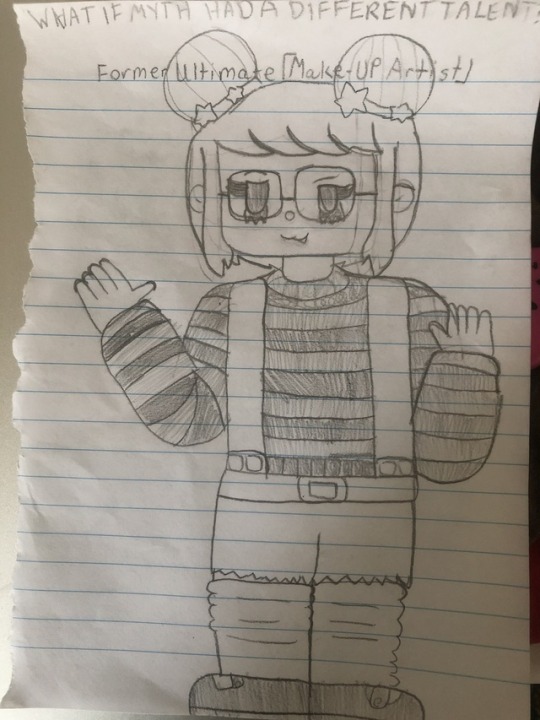
Talentswap Tuesday is today! Please keep your eyes peeled, or she just might jump out from the shadows to give you an impromptu makeover! It’s Myth, the Former Ultimate Makeup Artist!
————————-——————————
BACKSTORY AND TALENT
When you first of her talent, you would assume Myth to be some kind of Marylin Monroe-esque social media influencer. But despite Myth’s skill in standard makeup application, Myth’s speciality lies in horror and special effects. Able to turn a person from a beauty to a beast, Myth’s makeup skills are praised by both the horror fanatic crowd and the beautician crowd. As the third daughter to an American horror movie actor and a Ukrainian beautician, Myth’s talent manages to consist of the best of both worlds. Starting out as a humble assistant at some of her father‘s movie shoots, eventually Myth garnered internet fame for her tutorials on how to give yourself extra eyes or how to turn into a vampire. She still hasn’t lost any of her spooky and impish charm, even as an adult and chaperone of Hope’s Peak’s annual Kibo-Con field trip.
——————————————————-
RELATIONSHIP
Wyre Anon, Former Ultimate Storyteller
Folks come far and wide to hear Wyre’s macabre tales that can leave even the strongest of bodyguards shaking in their boots. Myth and Wyre knew each other ever since they were little, having bonded over their shared love of horror and the macabre. And you can bet your bottom dollar that their relationship is still going strong to this very day. Myth regularly helps Wyre with their makeup to up the horror factor, usually making Wyre resemble an oni or a dragon. This fearsome duo just love teaming up to scare the other Anons.
Outfit: White face paint with black circles around their eyes and cracks painted into their face, a large purple cape held together with a skull design, a black vest and red ascot over a white dress shirt, brown pants, black heeled boots.
Anon Scar, Ultimate Jazz Singer
With her proficient skill at both vocals and instruments, Anon Scar, also known by her stage name “Guardian of Soul”, managed to revitalize the jazz genre. You’d think that with her whole demon motif along with her cool and calm behavior on stage, Scar would be able to handle Myth’s horror. But all of that talk of demons and curses is merely a facade, concealing an easily-frazzled and heavily concerned mom friend. Myth loves drawing wounds on herself and pretending to be hurt around Scar, just to see Scar’s facade break.
Outfit: A black vest with a white music note design on the back over a white tank top, black pants, black fingerless gloves, a microphone around her right ear, the scarf and boots from her original design.
Fusion Anon, Ultimate Forensic Sociologist
An expert on human behaviors, body language and social interactions, Fusion possesses an uncanny intuition and can read people like a book, making him a tough nut to crack for the more deceptive and manipulative students. Despite his creepy intuition, Fusion remains a kind-hearted, almost paternal, young man. Myth was thinking that if Fusion wasn’t so kind-hearted and she touched up on his makeup, his freakish intuition and his freakishly thin and tall body would make him the perfect horror movie monster.
Outfit: An oversized dark blue trench coat, an equally large red scarf that covers his mouth, the pants, shoes and glasses from his original design.
Fusion Anon II, Ultimate Beatboxer
Conquering rap battles after rap battles, Fusion II is famous for both her epic beatboxing skills and the equally epic roasts of her opponents. But similar to Scar, Fusion II‘s sarcastic and flippant demeanour is merely a facade. Deep down, Fusion II is a massive nerd, particularly for literature and poetry. This love for the written word can be found in many lyrics of her rap songs. Myth finds Fusion II to be a fun person to scare, especially when the beatboxer is in the middle of one of her breakdancing sessions.
Outfit: A white jumpsuit that is undone at her waist revealing her red tanktop and fake gold heart necklace underneath, blue and white sneakers, black fingerless gloves, a couple of piercings in her ears, a red cap worn backwards, sunglasses from her original design.
Just Anon, Ultimate Seer
Ever since he was little, Janon has been having weird prophetic dreams and Janon felt the urge to draw them in his dream journal. Sleeping and drawing are about the only two things that Janon really puts effort into. Janon sleeps a lot to maximize the number of prophecies he can see, and he can get really grouchy if someone wakes him up in the middle of his dreams. As much as Janon tries to put up the image of a stoic emo, his ridiculous fashion sense and adorable appearance makes Janon Myth‘s number one teasing target.
Outfit: Back-length hair that he didn’t bother to cut with a couples of pencils stuck in, a pink ski cap with bunny ears, a white mask with a cat mouth and whiskers on them, a yellow raincoat, galaxy leggings, nothing on his feet.
Sparkle Anon, Former Ultimate Linguist
Coming from an influential family known for their international branches, Sparkle has a penchant for traveling and managed to pick up languages left and right. Currently speaking 14 languages at a native level, Sparkle has a loud, bombastic and dramatic personality. And that loud, bombastic and dramatic personality makes really great reactions to Myth’s jumpscares, along with the added bonus of hearing Sparkle curse in different languages. Sparkle would let Myth touch up on her makeup as long as Myth promises not to put gory details on the linguist’s face.
Outfit: A brown vest over a long-sleeved blue dress shirt, a brown skirt, grey nylons, black heels, a large cape with a map of the word on it, blue pauldrons.
Egg Anon, Former Ultimate Barista, and Wet Sock Anon, Former Ultimate Perfumer
With the twin’s love for the cursed and macabre, Myth got along with them like a house on fire. Myth regularly hangs out with Egg at their coffee house and exchange their regular cursed inside jokes over a nice cup of joe. Wet Sock, despite their bitter personality, produces some of the best-smelling and luxurious perfume in the known world. Wet Sock’s and Myth’s shared love of cosmetics makes them quite the cursed duo. Both of them may have growing feelings for Myth and they usually fight over her, much to Myth’s amusement.
Egg’s Outfit: A white polo shirt, a green apron, black pants and brown loafers.
Wet Sock’s Outfit: A white polo shirt, a black vest, black pants and brown loafers.
Curious Anon, Jr. Ultimate Fencer
Being raised by a prestigious family of fencers, Curious managed to dominate fencing tournaments despite their height and age. Curious is loyal, stalwart and above all else, chivalrous. Said chivalry earned them tons of admirers in their old private school. Similar to Fusion, Curious is also a tough nut to crack, for Curious just has this constant poker face, no matter what horrifying imagery Myth throws at them. But Myth is a determined little lass and will find a way to scare Curious, or she will die trying.
Outfit: Hair in a small ponytail, red and white jacket over a red vest and green tie over a white dress shirt, cream pants, black boots and gloves, always has their trusty rapier on their person.
Anon Nerd, Former Ultimate Lucky Student
Having been admitted to Hope’s Peak via a mere lottery, Anon Nerd has a foul mouth and an equally foul temper, which very clearly came from the poor hand in life that his bad luck gave him. Nerd doesn’t really have anything to his name apart from being part of his school‘s debate club and getting into screaming matches against 13 year olds online. Because of Nerd’s easily-enraged and overreacting personality, Myth finds Nerd in particular to be a fascinating subject to scare. Nerd’s blushy face is just so darn adorable!
Outfit: A black hoodie hood-up, black sweatpants, white socks, grey flip flops.
Eldritch Anon, Ultimate Crime Novelist
Famous for both his graphic and suspenseful novels and his general evasiveness about his personal information, it truly was a wonder that Myth‘s favorite crime novels were written by not only a Hope’s Peak student, but also someone who is 5 years her junior. Myth regularly tries to socialize with her hero in literature, but despite writing graphic crime novels, Eldritch is cowardly and runs away screaming at the slightest chance of danger. Myth’s generally creepy behavior and interests doesn’t really help matters.
Outfit: Longer hair in a ponytail, a dark purple vest with an orange question mark on the lapel over a long white dress shirt, an orange cravat, grey pants, black socks, black slip-on shoes.
Dream Anon, Ultimate Lighting Designer
Dream has become famous for catapulting her school’s theater club to stardom with her amazing light displays. Dream and Myth both have careers centered around show business, they both admire Eldritch Anon and his novels, and they both have outgoing and childish personalities. But a certain quality about Dream prevents Myth from putting her on her list of friends: Dream is a fashion disaster! Myth always tries to give Dream a makeover and a tirade about how crocs are evil, but everything goes in one ear and comes out the other.
Outfit: A blue headband, part of her hair is put into a small sidetail with a green scrunchie, her hair is dyed a rainbow of colors, a black tanktop, a black, white, and pink jacket draped over her shoulders, various fake gold jewelry, orange headphones, white jorts, a blue and purple stocking on her left leg and a green and yellow stocking on her right leg, red crocs.
Iris Anon, Ultimate Jack-Of-All-Trades
Unlike other Ultimates with a clear-cut talent, Iris has mastered a ton of talents but not to the point of Ultimate status. Iris’s unorthodox Ultimate makes her an enigma amongst the other Ultimates. Despite not knowing what her plans are for the future, Iris is determined to make the most of the vast array of skills she mastered. Iris is very optimistic, able to see the good in even the worst and cursed of monsters. Myth admires Iris’s determination and Myth regularly uses Iris as her pranking accomplice.
Outfit: A grey beanie cap with a dark blue star design, a green flannel jacket over a white t-shirt, a gold coin necklace, light blue jorts, white socks and green loafers with white soles, glasses and bandages from her original design.
Purple Anon, Ultimate Toxicologist
As the scion of an influential family in the science field, Purple Anon is hailed as a prodigy in the field of toxicology. Because of Purple’s upbringing, her vocabulary is both old-fashioned and heavily uses scientific jargon, which makes her speech very hard to decipher by the Anons, with a couple of exceptions. Purple has a timid and easy-to-startle personality, usually hiding behind her good friend, Fusion. Myth regularly consults Purple on any new makeup products, to make sure that the makeup isn’t toxic or an allergen.
This series centers around the gremlin make-up artist trying her best to scare her conmates, but eventually, she opens up to others and proves to be a bit of a cinnamon roll.
——————————————————-
PERSONALITY
Having been surrounded by horror for the majority of her life, MakeupArtist!Myth is unfazed at the prospect of horror and revels in the macabre and unnerving. Despite regularly getting kicks from scaring her fellow Anons, MakeupArtist!Myth has a surprisingly kind-hearted personality despite her impish and devious first impression, and can dial back her horror for people like Eldritch and Purple. MakeupArtist!Myth is a massive fashion police towards the other Anons, particularly towards LightingDesigner!Dream.
——————————————————-
APPEARANCE
MakeupArtist!Myth wears her dyed purple hair in two space buns that she keeps up with blue scrunchies with yellow stars on them. She also wears an oversized grey and black sweater, dark blue short overalls, white gyaru-style socks, and black Mary Janes. Holding up her shorts is a belt that holds a bunch of makeup supplies. MakeupArtist!Myth has the same glasses from her original design, which frame her adorable dot eyes with elaborately designed eyeshadow.
——————————————————-
I hope you like this Tuesday’s Talentswap! I can’t wait to hear what you think of it! By the way, I’d totally recommend “Danganronpa: The Wolf’s Game”, if you want to see another Killing Game with an Ultimate Linguist as the protagonist! I wonder how Wolf Game’s Ultimate Linguist would interact with your Ultimate Linguist!
-Fusion Anon
—
Dang I would so like to be this good at makeup XD Wyre and I actually have a friend who’s super good with horror makeup
#submission#anon#fusion anon#art#not my art#fusion anon ii#just anon#dream anon#iris anon#curious anon#wet sock anon#egg anon#purple anon#eldritch anon#sparkling anon#anon nerd#anon scar#my evil twin#i speak#anon kg#talentswap tuesday
8 notes
·
View notes
Text
Asian Fantasy Novels for the Lunar New Year
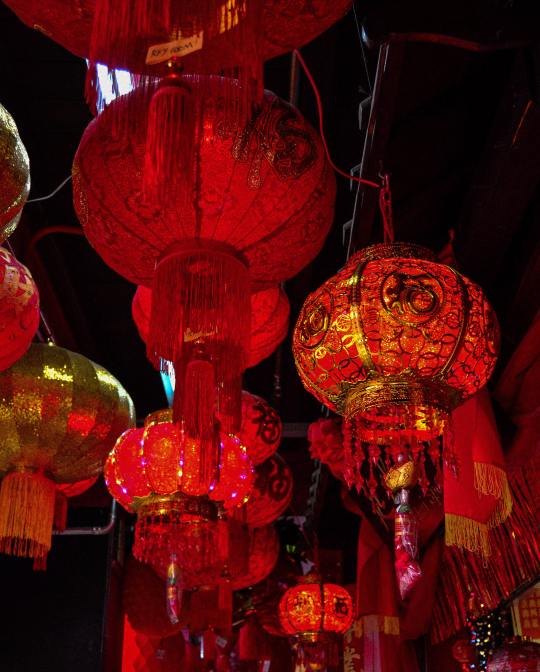
Photo by Thyla Jane
Happy Year of the Ox! The Lunar New Year, or Spring Festival, is a major celebration in many Asian countries. Marking the first new moon of the lunar calendar, this celebration lasts for days and is a time for family and friends, lantern festivals, dragon and lion dances, gifts of money, fireworks, and feasts. There’s something enchanting about the Lunar New Year, with its bright lanterns lining every street and its sparkling starbursts lighting the night sky. At its heart is tradition, cultural beliefs, and a mixture of mythology and magic. Simple charms are used to bring good luck and drive away evil. The supernatural has a firm place amid the celebrations, from shoe-stealing ghosts in South Korea to Vietnamese kitchen gods to the lion-like monster Nian in China. As such, this holiday presents a marvelous opportunity to both celebrate various Asian cultures and conjure a sense of wonder. So, to celebrate the Lunar New Year, here are four fantasy novels rooted in Asian culture and lore.
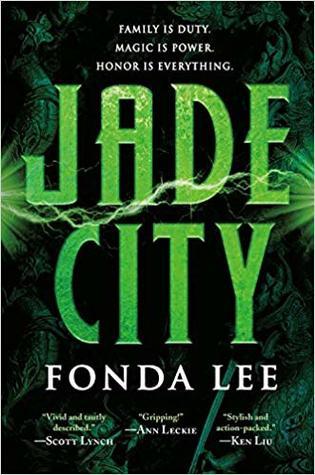
Jade City by Fonda Lee
On the island of Kekon, jade grants those with the ability to wield it special powers, but promises pain and death for anyone lacking the right genetics who tries to use it. As a result, jade smuggling is a profitable business and those families with the capacity to use the mineral, called Jade Bones, make up the highest class of society. But now ordinary citizens are somehow gaining the ability to use jade, and it is throwing the society of Kekon into turmoil. As suspicion fuels inter-clan warfare among the noble class, the future of the island nation hangs in the balance. In the midst of this chaos stands three siblings. Kaul Lan, the new, young, peace-loving leader of his family, finds himself faced with the uncomfortable necessity of bloodshed as he tries to steer his clan through these uncertain times. Lan’s brother, the hot-tempered and passionate Kaul Hilo, is like a warrior straight out of old tales: honorable, protective, and hungry for battle and glory. Their sister, Shae, is an independent modern woman who chose to cast aside her jade along with her traditional roles in favor of freedom and marriage to an outsider. Added to this cast of characters is Wen, Hilo’s forbidden lover, who is burdened by the combination of coming from a disgraced family and being a rare Stone Eye, a supposedly cursed person completely immune to jade. All four have their differences and disagreements, and the tension between them mirrors the growing strain in their homeland at large. It will take them all, however, to find out who is responsible for the dangerous drug allowing non-Jade Bones to wield the sacred stone before it is too late.
This is a novel that bridges high fantasy and urban fantasy, weaving a tale of heroism, betrayal, and intrigue against the backdrop of a thoroughly modernized enchanted society. Lee’s narrative is intricate and interesting, her world building is exceptional, and her magical system is comprehensive and intelligent. Running throughout the entire tale are elements of Chinese myth and culture, with folklore concerning gods and monsters playing a vital part. Complex, well-written, and engaging, Jade City is grand and unique fantasy adventure.
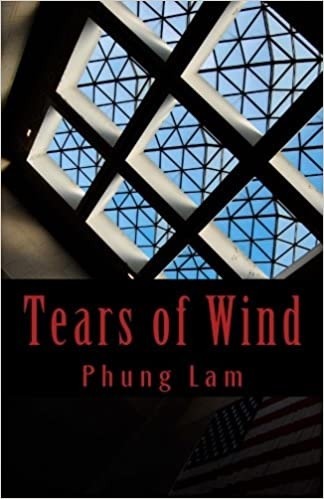
Tears of the Wind by Phung Lam
This collection of short stories is a touching as it is magical. Taking place on the fictional Island of Wishes, each tale explores human nature and the deepest desires people harbor in dark corners of their minds. From a lonely heart seeking solace to a soul hungry with ambition, this anthology explores the not only the power of wishes, but the question: what would people do if the one thing they truly wanted most could be theirs? It’s basically impossible to find an English version of this book, and I had to rely on the Smart Book translation application for the ebook format. That led to some odd phrasing in portions of the text, but the collection was nonetheless enjoyable. That is because Lam writes not only with imagination but also with a keen understanding of humanity.
The narratives are dreamlike, the content somewhat akin to magical realism and the tone ultimately surrealistic. Ranging from heartrending to horrifying, Lam weaves stories about the darkest parts of ourselves, when we harbor wishes we dare not name, as well as about the unforeseen and often terrible consequences of getting exactly what we think we want. The author explores the nature of love, the power of longing, and the baser side of our very nature. It’s an engaging collection that seems, and its core, to turn upon one basic thought: be careful what you wish for.
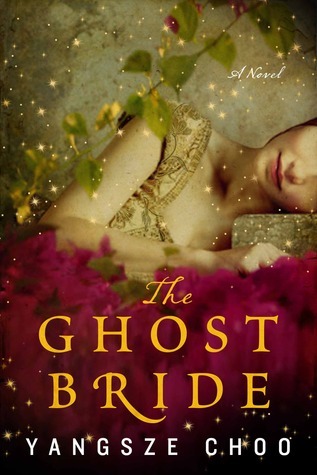
The Ghost Bride by Yangsze Choo
Set in late-nineteenth-century Malaya, on the island of Borneo, this novel sparkles with folk beliefs and superstitions. Li Lan is a spirited girl and only child from a family wrapped in what can only be called genteel poverty. Her life is certainly not perfect—her mother is dead, her father, although loving, has allowed his grief to lead to opium addiction, and her marriage prospects are extremely limited—but things aren’t so very bad. Apart from occasional longings for beautiful new clothing such as she sees other wealthier girls sporting, Li Lan would be reasonably content if it weren’t for one thing: her father has asked her if she would like become a ghost bride. He says it almost as a joke, but the moment he speaks the words, the wheels of fate start to turn. The rare tradition of ghost brides is meant to mollify the spirits of wealthy young men who died without marrying, and it presents both tempting and terrifying prospects. While accepting would mean financial help for her aging father as well as a place for Li Lan herself in one of Malacca city’s most affluent households, it would also mean giving up any dreams of love, passion, or children of her own.
Li Lan, of course, refuses, especially when she starts to develop feelings for another decided living man. But the choice may not be as easy as the thinks. She finds herself haunted by Lim Tiang Ching, her spectral suitor, and he is determined to have her. Tiang Ching, the young woman soon learns, was selfish and cruel when he was alive, and death hasn’t improved him. Desperate, Li Lan seeks the help of a local wise woman, and unwittingly finds herself embroiled in a supernatural struggle where ghosts are all too real and her only hope hangs on a mysterious young man who may be more than he seems, and who is most definitely keeping secrets. On top of that, she begins to realize that the Lim family is harboring some dark secrets of their own, and one of them may be deadly.
Choo’s narrative is imaginative as well as brimming with cultural folklore and traditions. A blend of mystery and fantasy, it is engaging from start to finish. Many of the characters are interesting and a little quirky, although a couple feel less well developed and there were a few moments when I felt the protagonist was a bit too flighty for my tastes. Nonetheless, this is a fun, entertaining fantasy book, perfect for an evening of light reading with a cup of tea or coffee at your side.
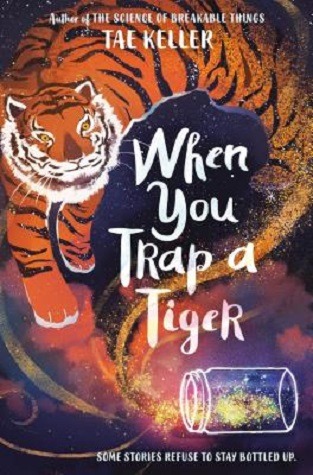
When You Trap a Tiger by Tae Keller
This is a truly wonderful novel blending together magical realism, mythology, family drama, and a deeply touching coming of age tale. It’s a beautifully written and imaginative narrative where opposites don’t so much collide as they do interweave in a complex dance. Dreams tangle with reality, childhood blurs with adolescence, Korean tradition intersects with modern America, folklore mingles with daily life, and stories become solid enough to touch. Through it all runs a profound understanding of emotion and the human spirit.
Lily has always loved visiting her Korean grandmother, catching stars to learn what stories they hold and listening to traditional tales from their ancestral homeland. This, however, is different. Now Lily, along with her mother and her sister, are moving in with the old woman because Lily’s grandmother is sick, and isn’t getting any better. A new city, a new school, and new fears about her beloved relative would all be difficult enough, but Lily has another problem: upon arriving, she sees a tiger straight out of one of her grandmother’s tales. This is both a metaphor for many things: words unsaid, terminal illness, fear, and long-ago mistakes. It is, however, also an introduction of the magical real. Upon informing her grandmother about the big cat, Lily begins unraveling the old woman’s greatest tale yet, and takes the first step in a personal journey to discover family secrets and leave her childhood behind. As marvelous as it is heartfelt, When You Trap a Tiger addresses conflicts between generations and cultures, as well as the reconciliation of the past, through the lens myths and storytelling. At its core, this is a novel about the power of both love and stories, as well as about one girl finding herself.
Perhaps one of these books will make an excellent companion over the next several days as celebrations of the Lunar New Year progress. Blending Asian folklore with a sense of the fantastic, these works may prove to be the perfect way for those not immersed in these festivities to still capture a bit of the season’s spirit. Readers hungry for an interesting narrative that is a little out of the ordinary will likely find any one of these to be a feast for the imagination, as well as a wonderful way to start of the Year of the Ox. Happy Reading!
#book#books#novel#novels#short stories#collection#review#reviews#book reviews#book review#book recommendations#recommendation#recommendations#Lunar New Year#Chinese New Year#fiction#fantasy#magical realism#Asian#folklore#mythology#myth#culture#folktales#reading#read#reader#book lover
9 notes
·
View notes